Biographies and Snapshots
 Tuula Ahlström is a commercial specialist and advisor with the U.S. Commercial Service in Sweden, responsible for supporting U.S. companies within advanced manufacturing and engineering sectors, such as cleantech (power production, renewables, smart grids, and energy efficiency, environmental technologies), built environment and industrial raw materials. Ms. Ahlström is the High Performance Building sector coordinator for Commercial Service Europe. Her responsibilities include business development & advocacy, export promotion & counseling, inward investment promotion & counseling, defining market entry strategies, conducting matchmaking programs, and more. In addition to her industry sector responsibilities, Ms. Ahlström coordinates activities for Stockholm’s partnership post, Latvia, including training, business service provision and other trade related issues. She also handles all export control related activities and Swedish inquiries for USDOC/Bureau of Industry and Security. Prior to joining the U.S. Commercial Service in June 1993, Ms. Ahlström worked for the Foreign Agricultural Service (1991-1993) as a Marketing Assistant, and for AAC Global (1983-1990) as a teacher of business English, providing tailor-made language courses for both public and private sectors. Ms. Ahlström has a B.A. in Marketing and Management Sciences and an M.A. in English Philology and World Literature. She has language fluency in Finnish, Swedish, English, German and Italian. Ms. Ahlström’s hobbies include exercise, travel, languages, literature and charity work.
Tuula Ahlström is a commercial specialist and advisor with the U.S. Commercial Service in Sweden, responsible for supporting U.S. companies within advanced manufacturing and engineering sectors, such as cleantech (power production, renewables, smart grids, and energy efficiency, environmental technologies), built environment and industrial raw materials. Ms. Ahlström is the High Performance Building sector coordinator for Commercial Service Europe. Her responsibilities include business development & advocacy, export promotion & counseling, inward investment promotion & counseling, defining market entry strategies, conducting matchmaking programs, and more. In addition to her industry sector responsibilities, Ms. Ahlström coordinates activities for Stockholm’s partnership post, Latvia, including training, business service provision and other trade related issues. She also handles all export control related activities and Swedish inquiries for USDOC/Bureau of Industry and Security. Prior to joining the U.S. Commercial Service in June 1993, Ms. Ahlström worked for the Foreign Agricultural Service (1991-1993) as a Marketing Assistant, and for AAC Global (1983-1990) as a teacher of business English, providing tailor-made language courses for both public and private sectors. Ms. Ahlström has a B.A. in Marketing and Management Sciences and an M.A. in English Philology and World Literature. She has language fluency in Finnish, Swedish, English, German and Italian. Ms. Ahlström’s hobbies include exercise, travel, languages, literature and charity work.
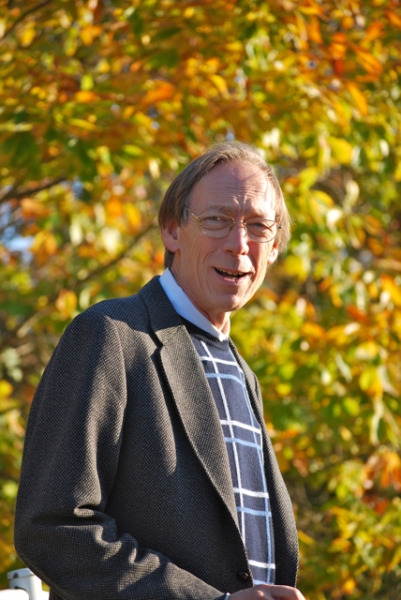 Peter Arzberger is currently serving as acting Division Director for Computer and Network Systems (CNS) in the Directorate for Computer and Information Science and Engineering (CISE) at the United States National Science Foundation. In addition he is serving as a Senior Advisor for Research Cyberinfrastructure in CISE. Since 1988 he has spent 11 years at NSF, in three tours of duty: first as Program Officer in Statistics and Probability, and later in Computational Biology; later as Division Director in the Division of Biological Infrastructure, and as acting Assistant Director CISE; and as Senior Science Advisor in Office of the Director. He is serving at NSF, on assignment from his home institution of the University of California San Diego (UCSD). At UCSD he has served as the founding Chair of the Pacific Rim Application and Grid Middleware Assembly (PRAGMA), co-director of the Pacific Rim Experiences for Undergraduates (PRIME) program, and as a founding member of the Steering Committee for the Global Lake Ecological Observatory Network (GLEON). His interest in Smart and Connected Communities is to encourage an international perspective in developing future research directions, and to explore opportunities to include ecological considerations in future activities.
Peter Arzberger is currently serving as acting Division Director for Computer and Network Systems (CNS) in the Directorate for Computer and Information Science and Engineering (CISE) at the United States National Science Foundation. In addition he is serving as a Senior Advisor for Research Cyberinfrastructure in CISE. Since 1988 he has spent 11 years at NSF, in three tours of duty: first as Program Officer in Statistics and Probability, and later in Computational Biology; later as Division Director in the Division of Biological Infrastructure, and as acting Assistant Director CISE; and as Senior Science Advisor in Office of the Director. He is serving at NSF, on assignment from his home institution of the University of California San Diego (UCSD). At UCSD he has served as the founding Chair of the Pacific Rim Application and Grid Middleware Assembly (PRAGMA), co-director of the Pacific Rim Experiences for Undergraduates (PRIME) program, and as a founding member of the Steering Committee for the Global Lake Ecological Observatory Network (GLEON). His interest in Smart and Connected Communities is to encourage an international perspective in developing future research directions, and to explore opportunities to include ecological considerations in future activities.
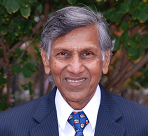 Kishan Baheti is a Program Director for Energy, Power, Control and Networks Program in the Division of Electrical, Communications, and Cyber Systems at the National Science Foundation. Dr. Baheti received the B.S. and M.S. in Electrical Engineering in India from VRCE Nagpur, and from BITS Pilani, respectively. In 1970, he came to USA and received M.S. in Information and Computer Science from University of Oklahoma and Ph.D. in Electrical and Computer Engineering from Oregon State University. In 1976, Dr. Baheti joined the Control Engineering Laboratory of GE Corporate Research and Development Center in Schenectady, NY. His work focused on advanced multivariable control for jet engines, computer- aided control system design, vision-based robots for precision welding, and Kalman filtering. Dr. Baheti and his colleagues received IR-100 award for robotic welding vision system. He has organized a series of educational workshops for GE engineers that resulted in innovative product developments and contributed to enhance university collaborations with GE business divisions. In 1989, Dr.Baheti joined NSF as a Program Director in the Division of Electrical and Communications Systems. His contributions include the development of NSF initiatives on "Combined Research and Curriculum Development", "Semiconductor Manufacturing", and NSF/EPRI Program on "Intelligent Control". In addition, he started NSF Program "Research Experience for Teachers (RET)" to involve middle and high school teachers in engineering research that can be transferred to pre-college classrooms. Recently he is involved in cyber-physical systems, science of learning, and Robotics. He has served as associate editor for IEEE Transactions on Automatic Control, member of the Control Systems Board of Governors, chair for Public Information Committee, and awards chair for the American Automatic Control Council (AACC). He received "Distinguished Member Award" from the IEEE Control Systems Society. In 2013, he received “Outstanding Leadership and Service Award” from the Electrical and Computer Engineering Department Head Association. He was elected a Fellow of IEEE and a Fellow of AAAS.
Kishan Baheti is a Program Director for Energy, Power, Control and Networks Program in the Division of Electrical, Communications, and Cyber Systems at the National Science Foundation. Dr. Baheti received the B.S. and M.S. in Electrical Engineering in India from VRCE Nagpur, and from BITS Pilani, respectively. In 1970, he came to USA and received M.S. in Information and Computer Science from University of Oklahoma and Ph.D. in Electrical and Computer Engineering from Oregon State University. In 1976, Dr. Baheti joined the Control Engineering Laboratory of GE Corporate Research and Development Center in Schenectady, NY. His work focused on advanced multivariable control for jet engines, computer- aided control system design, vision-based robots for precision welding, and Kalman filtering. Dr. Baheti and his colleagues received IR-100 award for robotic welding vision system. He has organized a series of educational workshops for GE engineers that resulted in innovative product developments and contributed to enhance university collaborations with GE business divisions. In 1989, Dr.Baheti joined NSF as a Program Director in the Division of Electrical and Communications Systems. His contributions include the development of NSF initiatives on "Combined Research and Curriculum Development", "Semiconductor Manufacturing", and NSF/EPRI Program on "Intelligent Control". In addition, he started NSF Program "Research Experience for Teachers (RET)" to involve middle and high school teachers in engineering research that can be transferred to pre-college classrooms. Recently he is involved in cyber-physical systems, science of learning, and Robotics. He has served as associate editor for IEEE Transactions on Automatic Control, member of the Control Systems Board of Governors, chair for Public Information Committee, and awards chair for the American Automatic Control Council (AACC). He received "Distinguished Member Award" from the IEEE Control Systems Society. In 2013, he received “Outstanding Leadership and Service Award” from the Electrical and Computer Engineering Department Head Association. He was elected a Fellow of IEEE and a Fellow of AAAS.
Suman Banerjee has strong expertise in various aspects of designing mobile and wireless systems. He has published more than 100 papers on related topics in leading technical conferences and journals. He is the winner of several award papers from these conferences including from ACM MobiCom, ACM CoNEXT, and IEEE Dyspan. He has published various papers on vehicular systems, the Internet of Things, and wireless systems in general in conferences such as ACM MobiSys, ACM MobiCom, ACM Sigcomm, NSDI, ACM CoNEXT, SOSP, IEEE Infocom, ACM IMC, and many more. Research results of Prof. Banerjee has also seen success beyond technical publications. For instance, his research results have won awards at the Interdigital Innovation Challenge and at the Wisconsin Governor's Business Plan Competition. Prof. Banerjee is a recipient of the inaugural ACM SIGMOBILE Rockstar award for early career achievement in the field of mobile and wireless systems. He has served as the technical program chair of multiple leading conferences in the field including ACM MobiCom, IEEE SECON, and more. He is currently serving as the chair of ACM SIGMOBILE.
 Jordan M. Berg is a faculty member in the Department of Mechanical Engineering at Texas Tech University. He is currently an IPA rotator in the CMMI Division of the Engineering Directorate of the US National Science Foundation, where he serves as co-director of the Dynamics, Control and System Diagnostics (DCSD) program. The DCSD program encompasses many research topics relevant to Smart and Connected Communities, including the dynamics and control of complex, distributed and networked systems, and modeling of humans in engineering contexts. More broadly, the CMMI division supports advanced research in transportation, water, waste and the built environment, with programs addressing topics such as multi-hazard mitigation, distributed manufacturing, and robust, reliable and resilient infrastructure.
Jordan M. Berg is a faculty member in the Department of Mechanical Engineering at Texas Tech University. He is currently an IPA rotator in the CMMI Division of the Engineering Directorate of the US National Science Foundation, where he serves as co-director of the Dynamics, Control and System Diagnostics (DCSD) program. The DCSD program encompasses many research topics relevant to Smart and Connected Communities, including the dynamics and control of complex, distributed and networked systems, and modeling of humans in engineering contexts. More broadly, the CMMI division supports advanced research in transportation, water, waste and the built environment, with programs addressing topics such as multi-hazard mitigation, distributed manufacturing, and robust, reliable and resilient infrastructure.
 Michael B. Bragg joined the UW College of Engineering as the Frank and Julie Jungers Dean of Engineering in July of 2013. An aeronautical engineer by training, Dean Bragg previously held numerous leadership positions at the University of Illinois, including interim dean of the College of Engineering, executive associate dean for academic affairs, associate dean for research and administrative affairs, and head of the aerospace engineering department. Bragg is an international expert on the effect of ice accretion on aircraft aerodynamics and flight safety. He directed over $15 million in externally funded research and published more than 200 research papers. He is a Fellow of the American Institute of Aeronautics and Astronautics and has received several national awards for his work.
Michael B. Bragg joined the UW College of Engineering as the Frank and Julie Jungers Dean of Engineering in July of 2013. An aeronautical engineer by training, Dean Bragg previously held numerous leadership positions at the University of Illinois, including interim dean of the College of Engineering, executive associate dean for academic affairs, associate dean for research and administrative affairs, and head of the aerospace engineering department. Bragg is an international expert on the effect of ice accretion on aircraft aerodynamics and flight safety. He directed over $15 million in externally funded research and published more than 200 research papers. He is a Fellow of the American Institute of Aeronautics and Astronautics and has received several national awards for his work.
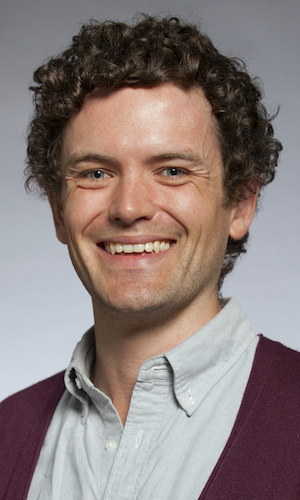 Sam Burden earned his BS with Honors in Electrical Engineering from the University of Washington in Seattle in 2008. He earned his PhD in Electrical Engineering and Computer Sciences at the University of California in Berkeley in 2014 where he subsequently spent one year as a Postdoctoral Scholar. In 2015, Sam returned to UW EE as an Assistant Professor. Sam is broadly interested in discovering and formalizing principles of sensorimotor control for humans interacting with CPS. In many applications, humans occupy a critical role in CPS that cannot be completely automated; consider, for instance, the roles of people in piloting aircraft and responding to a natural disaster. The characteristic interaction in the resulting human-cyber-physical system (HCPS) occurs between a dynamic physical process and two (or more) decision-making agents, namely, the human and automation. Naively coupling between humans and automation can lead to catastrophic outcomes, for instance when an aircraft pilot is confused as to the state of an autopilot. It is imperative that we develop techniques that provide guarantees for performance following an automated intervention. This development will provide the foundation to engineer provably-safe HCPS that can be deployed in society with high confidence.
Sam Burden earned his BS with Honors in Electrical Engineering from the University of Washington in Seattle in 2008. He earned his PhD in Electrical Engineering and Computer Sciences at the University of California in Berkeley in 2014 where he subsequently spent one year as a Postdoctoral Scholar. In 2015, Sam returned to UW EE as an Assistant Professor. Sam is broadly interested in discovering and formalizing principles of sensorimotor control for humans interacting with CPS. In many applications, humans occupy a critical role in CPS that cannot be completely automated; consider, for instance, the roles of people in piloting aircraft and responding to a natural disaster. The characteristic interaction in the resulting human-cyber-physical system (HCPS) occurs between a dynamic physical process and two (or more) decision-making agents, namely, the human and automation. Naively coupling between humans and automation can lead to catastrophic outcomes, for instance when an aircraft pilot is confused as to the state of an autopilot. It is imperative that we develop techniques that provide guarantees for performance following an automated intervention. This development will provide the foundation to engineer provably-safe HCPS that can be deployed in society with high confidence.
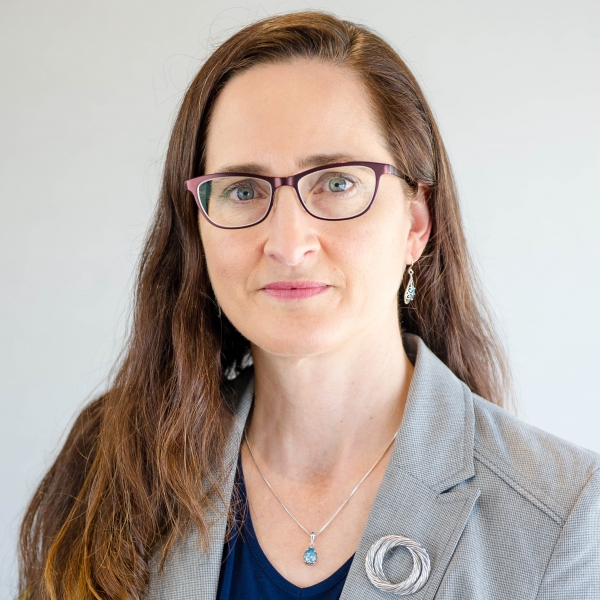 Linda Bushnell is a Research Associate Professor in the Electrical Engineering Department of the University of Washington. She received a Ph.D. (EE, 1994) and M.A. (Math, 1989) from UC Berkeley, and an M.S. (EE, 1987) and B.S. (EE, 1985) from UConn. She also holds an MBA (2010) from the UW Foster School of Business. Her research interests include networked control systems and secure-control. She is a recipient of the US Government Superior Civilian Service Award, NSF ADVANCE Fellowship, and IEEE CSS Recognition Award. She is a Senior Member of the IEEE (1999), and has been a member of the IEEE since 1985, a member of the IEEE CSS since 1990, and a member of the IEEE Women in Engineering since 2013. For IEEE CSS, she currently is a Member of the Board of Governors, a Distinguished Lecturer, a member of the Women in Control Standing Committee, a member of the TC Control Education, a member of the History Committee, and the Liaison to IEEE Women in Engineering. For the American Automatic Control Council (AACC), she currently is the Treasurer and a Member of the Technical Committee on Control Education. Interests: Professor Bushnell’s background is in the area of control systems, notably networked control systems (NCS). She pioneered the area of NCS and has recently developed fundamental work in the new area of secure-control. She is interested in the modeling, control, and security of smart and connected communities (SCC). Tools from NCS and secure-control, such as submodularity, passivity, and model composition, will have huge impact in the SCC area. Example current projects include modeling and mitigating voltage and transient instabilities on the Smart Grid, using passivity-based control for modeling and mitigating cyber attacks on Cyber-physical Systems (CPS), and using submodularity optimization techniques to model and control leader-follower multi-agent systems. The key emphasis is having a model to work with, which then opens the SCC problems to the controls research community.
Linda Bushnell is a Research Associate Professor in the Electrical Engineering Department of the University of Washington. She received a Ph.D. (EE, 1994) and M.A. (Math, 1989) from UC Berkeley, and an M.S. (EE, 1987) and B.S. (EE, 1985) from UConn. She also holds an MBA (2010) from the UW Foster School of Business. Her research interests include networked control systems and secure-control. She is a recipient of the US Government Superior Civilian Service Award, NSF ADVANCE Fellowship, and IEEE CSS Recognition Award. She is a Senior Member of the IEEE (1999), and has been a member of the IEEE since 1985, a member of the IEEE CSS since 1990, and a member of the IEEE Women in Engineering since 2013. For IEEE CSS, she currently is a Member of the Board of Governors, a Distinguished Lecturer, a member of the Women in Control Standing Committee, a member of the TC Control Education, a member of the History Committee, and the Liaison to IEEE Women in Engineering. For the American Automatic Control Council (AACC), she currently is the Treasurer and a Member of the Technical Committee on Control Education. Interests: Professor Bushnell’s background is in the area of control systems, notably networked control systems (NCS). She pioneered the area of NCS and has recently developed fundamental work in the new area of secure-control. She is interested in the modeling, control, and security of smart and connected communities (SCC). Tools from NCS and secure-control, such as submodularity, passivity, and model composition, will have huge impact in the SCC area. Example current projects include modeling and mitigating voltage and transient instabilities on the Smart Grid, using passivity-based control for modeling and mitigating cyber attacks on Cyber-physical Systems (CPS), and using submodularity optimization techniques to model and control leader-follower multi-agent systems. The key emphasis is having a model to work with, which then opens the SCC problems to the controls research community.
 Jennifer Clark is the Director of Georgia Tech's Center for Urban Innovation and an Associate Professor in the School of Public Policy. Dr. Clark publishes work on the development and diffusion of urban and regional policies and their effect on cities and their economic resilience. Her book, Remaking Regional Economies won the Best Book Award from the Regional Studies Association in 2009. She published Working Regions in 2013 and the Handbook of Manufacturing Industries in the World Economy in 2015. She has worked on innovation policy projects with a broad range of organizations including the OECD and the Canadian, UK, and US governments.
Jennifer Clark is the Director of Georgia Tech's Center for Urban Innovation and an Associate Professor in the School of Public Policy. Dr. Clark publishes work on the development and diffusion of urban and regional policies and their effect on cities and their economic resilience. Her book, Remaking Regional Economies won the Best Book Award from the Regional Studies Association in 2009. She published Working Regions in 2013 and the Handbook of Manufacturing Industries in the World Economy in 2015. She has worked on innovation policy projects with a broad range of organizations including the OECD and the Canadian, UK, and US governments.
She earned her Ph.D. from Cornell University, an MPlan from the University of Minnesota, and a BA from Wesleyan University in Connecticut. She is the current vice president of the Economic Geography Specialty Group (EGSG) of the Association of American Geographers.
 David Corman is the lead Program Director for the National Science Foundation Cyber Physical Systems Program. He is serving at NSF on assignment from Washington University in St. Louis. Dr. Corman obtained a dual BS degree in System Science and Mathematics and Applied Mathematics and Computer Science from Washington University. He then obtained a dual MS degree in SSM and Mechanical Engineering from Washington University. Dr. Corman obtained a PhD in Electrical Engineering from the University of Maryland – College Park with major in Controls and a Minor in Communications. While at Maryland, he also worked at the Johns Hopkins Applied Physics Laboratory. Dr. Corman worked for McDonnell Douglas / Boeing in a variety of positions and was elected a Boeing Technical Fellow in 1999. Dr. Corman’s current research interests are in the field of Cyber Physical Systems (CPS) including Smart and Connected Communities, security for CPS, unmanned systems, IoT, and manufacturing. Dr. Corman has more than 30 publications and has obtained five patents in a variety of technical areas. His interests in Smart and Connected Communities are quite diverse. They include helping to define a long-term research agenda for SCC that respects the multiple visions and heterogeneity of communities and includes exit ramps for technology pilots and transitions. Dr. Corman is also keenly interested in developing approaches for quantifying the impacts of SCC research, and in particular developing public / private partnerships that can take great research ideas and solutions and move them into practice.
David Corman is the lead Program Director for the National Science Foundation Cyber Physical Systems Program. He is serving at NSF on assignment from Washington University in St. Louis. Dr. Corman obtained a dual BS degree in System Science and Mathematics and Applied Mathematics and Computer Science from Washington University. He then obtained a dual MS degree in SSM and Mechanical Engineering from Washington University. Dr. Corman obtained a PhD in Electrical Engineering from the University of Maryland – College Park with major in Controls and a Minor in Communications. While at Maryland, he also worked at the Johns Hopkins Applied Physics Laboratory. Dr. Corman worked for McDonnell Douglas / Boeing in a variety of positions and was elected a Boeing Technical Fellow in 1999. Dr. Corman’s current research interests are in the field of Cyber Physical Systems (CPS) including Smart and Connected Communities, security for CPS, unmanned systems, IoT, and manufacturing. Dr. Corman has more than 30 publications and has obtained five patents in a variety of technical areas. His interests in Smart and Connected Communities are quite diverse. They include helping to define a long-term research agenda for SCC that respects the multiple visions and heterogeneity of communities and includes exit ramps for technology pilots and transitions. Dr. Corman is also keenly interested in developing approaches for quantifying the impacts of SCC research, and in particular developing public / private partnerships that can take great research ideas and solutions and move them into practice.
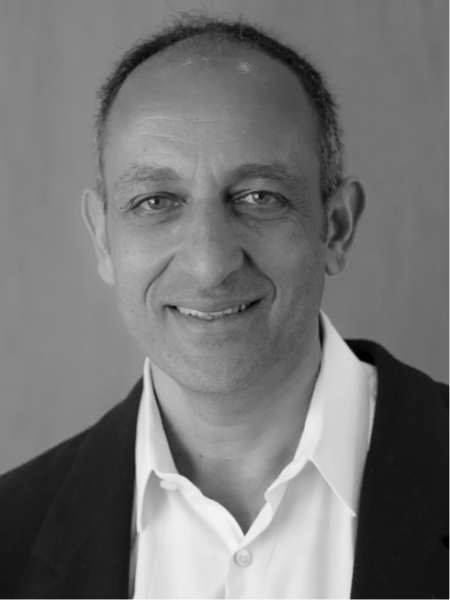 Munther A. Dahleh received his Ph.D. degree from Rice University, Houston, TX, in 1987, in Electrical and Computer Engineering. Since then, he has been with the Department of Electrical Engineering and Computer Science, MIT, Cambridge, MA, where he is now the William A. Coolidge Professor of EECS. He is currently the acting director of the Engineering Systems Division, and Director-designate of a new organization addressing major societal problems through unification of the intellectual pillars in Statistics, Information and Decision Systems, and Human and Institution Behavior. Previously, he held the position of Associate Department Head of EECS. He has been a visiting Professor at the Department of Electrical Engineering, California Institute of Technology, Pasadena, CA, for the Spring of 1993. He has consulted for various national research laboratories and companies. Dr. Dahleh is interested in Networked Systems with applications to Social and Economic Networks, Transportation Networks, and the Power Grid. Specifically, he focuses on the development of foundational theory necessary to understand, monitor, and control systemic risk in interconnected systems. His work draws from various fields including game theory, optimal control, distributed optimization, information theory, and distributed learning. His collaborations include faculty from all five schools at MIT. Dr. Dahleh is the co-author (with Ignacio Diaz-Bobillo) of the book Control of Uncertain Systems: A Linear Programming Approach, published by Prentice-Hall, and the co-author (with Nicola Elia) of the book Computational Methods for Controller Design published by Springer. He is the three times recipient of the George Axelby outstanding paper award for best paper in IEEE Transactions on automatic control. He is also the recipient of the Donald P. Eckman award from the American Control Council in 1993 for the best control engineer under 35. He has given many keynote lectures at major conferences.
Munther A. Dahleh received his Ph.D. degree from Rice University, Houston, TX, in 1987, in Electrical and Computer Engineering. Since then, he has been with the Department of Electrical Engineering and Computer Science, MIT, Cambridge, MA, where he is now the William A. Coolidge Professor of EECS. He is currently the acting director of the Engineering Systems Division, and Director-designate of a new organization addressing major societal problems through unification of the intellectual pillars in Statistics, Information and Decision Systems, and Human and Institution Behavior. Previously, he held the position of Associate Department Head of EECS. He has been a visiting Professor at the Department of Electrical Engineering, California Institute of Technology, Pasadena, CA, for the Spring of 1993. He has consulted for various national research laboratories and companies. Dr. Dahleh is interested in Networked Systems with applications to Social and Economic Networks, Transportation Networks, and the Power Grid. Specifically, he focuses on the development of foundational theory necessary to understand, monitor, and control systemic risk in interconnected systems. His work draws from various fields including game theory, optimal control, distributed optimization, information theory, and distributed learning. His collaborations include faculty from all five schools at MIT. Dr. Dahleh is the co-author (with Ignacio Diaz-Bobillo) of the book Control of Uncertain Systems: A Linear Programming Approach, published by Prentice-Hall, and the co-author (with Nicola Elia) of the book Computational Methods for Controller Design published by Springer. He is the three times recipient of the George Axelby outstanding paper award for best paper in IEEE Transactions on automatic control. He is also the recipient of the Donald P. Eckman award from the American Control Council in 1993 for the best control engineer under 35. He has given many keynote lectures at major conferences.
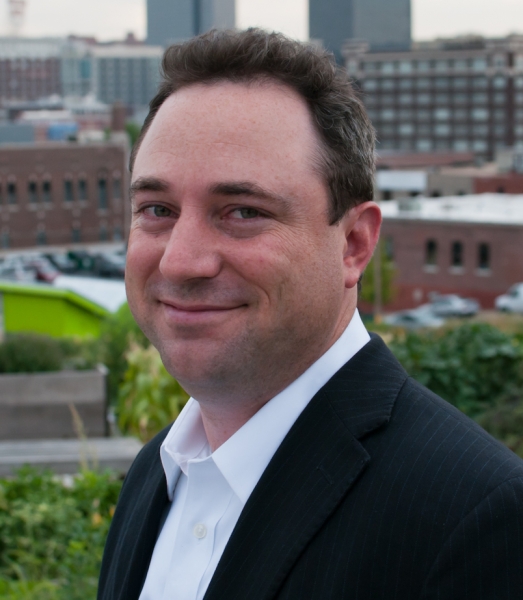 Aaron Deacon is the managing director of KC Digital Drive, a nonprofit civic tech startup supporting technology projects that increase economic prosperity and improve the quality of life for people in Kansas City. We focus on the human side of technology by addressing the digital divide, supporting high-impact technology pilot projects, and elevating Kansas City’s position as a leading digital city. Working closely with the Kansas City mayors’ offices, KC Digital Drive was designed to drive innovation and collaboration in Kansas City and capitalize on next generation infrastructure. The organization covers a broad range of issues including education, health care, the arts, entrepreneurship, sustainability and digital inclusion. Aaron has been an instrumental leader in helping Kansas City prepare to be the first market for Google Fiber. He helped create the Building the Gigabit City community brainstorming session, led the Give Us a Gig initiative for neighborhood education, engagement and advocacy, and organized the Gigabit City Summit to explore city infrastructure issues around next generation networks and help cities develop community playbooks to take advantage of ultra high-speed broadband. He is the founder and principal of the research and strategic planning agency Curiolab. He serves as chairman of the Social Media Club of Kansas City. He has a masters in social science from the University of Chicago and a bachelor’s degree from the University of Dallas.
Aaron Deacon is the managing director of KC Digital Drive, a nonprofit civic tech startup supporting technology projects that increase economic prosperity and improve the quality of life for people in Kansas City. We focus on the human side of technology by addressing the digital divide, supporting high-impact technology pilot projects, and elevating Kansas City’s position as a leading digital city. Working closely with the Kansas City mayors’ offices, KC Digital Drive was designed to drive innovation and collaboration in Kansas City and capitalize on next generation infrastructure. The organization covers a broad range of issues including education, health care, the arts, entrepreneurship, sustainability and digital inclusion. Aaron has been an instrumental leader in helping Kansas City prepare to be the first market for Google Fiber. He helped create the Building the Gigabit City community brainstorming session, led the Give Us a Gig initiative for neighborhood education, engagement and advocacy, and organized the Gigabit City Summit to explore city infrastructure issues around next generation networks and help cities develop community playbooks to take advantage of ultra high-speed broadband. He is the founder and principal of the research and strategic planning agency Curiolab. He serves as chairman of the Social Media Club of Kansas City. He has a masters in social science from the University of Chicago and a bachelor’s degree from the University of Dallas.
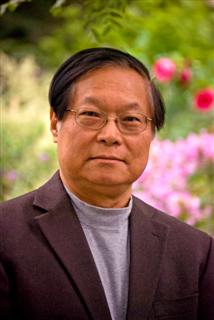 David H.C. Du received the B.S. degree in mathematics from National Tsing-Hua University, Taiwan, R.O.C. in 1974, and the M.S. and Ph.D. degrees in computer science from the University of Washington, Seattle, in 1980 and 1981, respectively. He is currently the Qwest Chair Professor at the Computer Science and Engineering Department, University of Minnesota, Minneapolis. His research interests include cyber security, cyber physical systems, sensor networks, multimedia computing, storage systems, high-speed networking, high-performance computing, and CAD for VLSI circuits. Dr. Du is an IEEE Fellow and a Fellow of Minnesota Supercomputer Institute. One of his current research efforts includes how to integrate data and networking together to fully support on demand requests to a large volume of available data generated by smart and connected cities/communities.
David H.C. Du received the B.S. degree in mathematics from National Tsing-Hua University, Taiwan, R.O.C. in 1974, and the M.S. and Ph.D. degrees in computer science from the University of Washington, Seattle, in 1980 and 1981, respectively. He is currently the Qwest Chair Professor at the Computer Science and Engineering Department, University of Minnesota, Minneapolis. His research interests include cyber security, cyber physical systems, sensor networks, multimedia computing, storage systems, high-speed networking, high-performance computing, and CAD for VLSI circuits. Dr. Du is an IEEE Fellow and a Fellow of Minnesota Supercomputer Institute. One of his current research efforts includes how to integrate data and networking together to fully support on demand requests to a large volume of available data generated by smart and connected cities/communities.
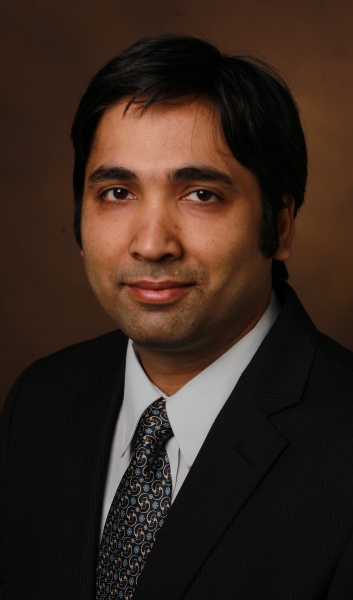 Abhishek Dubey is a Research Scientist at the Institute for Software Integrated Systems and an Adjunct Assistant Professor in the Computer Science department at Vanderbilt University. His research interests include tools, platforms and analytical techniques for low latency, resilient, and extensible platforms for Cyber-Physical Systems. He is particularly interested in application of his work to solve the interoperability, scalability and resilience challenges that are faced by applications developed and deployed for smart and connected communities. Abhishek leads the Transit Hub project, which is investigating the fusion of real-time and predictive data analytics for public transportation in Nashville. He completed his PhD in Electrical Engineering from Vanderbilt University in 2009. He received his M.S. in Electrical Engineering from Vanderbilt University in August 2005 and Bachelor of Technology in electrical engineering from the Indian Institute of Technology, Banaras Hindu University, India in May 2001. He is a senior member of IEEE.
Abhishek Dubey is a Research Scientist at the Institute for Software Integrated Systems and an Adjunct Assistant Professor in the Computer Science department at Vanderbilt University. His research interests include tools, platforms and analytical techniques for low latency, resilient, and extensible platforms for Cyber-Physical Systems. He is particularly interested in application of his work to solve the interoperability, scalability and resilience challenges that are faced by applications developed and deployed for smart and connected communities. Abhishek leads the Transit Hub project, which is investigating the fusion of real-time and predictive data analytics for public transportation in Nashville. He completed his PhD in Electrical Engineering from Vanderbilt University in 2009. He received his M.S. in Electrical Engineering from Vanderbilt University in August 2005 and Bachelor of Technology in electrical engineering from the Indian Institute of Technology, Banaras Hindu University, India in May 2001. He is a senior member of IEEE.
 Leonard Forsman has served as Tribal Chairman of the Suquamish Tribe since 2005. His interests include tribal education, cultural preservation, gaming policy and habitat protection. He has served on Tribal Council for a total of 25 years, worked as an archaeologist for Larson Anthropological/ Archaeological Services and is the former director of the Suquamish Museum. Leonard is a graduate of the University of Washington (B.A. Anthropology) and Goucher College (M.A. Historic Preservation). He grew up in Suquamish on the Port Madison Indian Reservation and continues to live there with his wife Jana Rice. Leonard regularly participates in cultural activities including Suquamish Song & Dance and the annual Tribal Canoe Journey. Leonard serves on the boards of the Washington State Historical Society, the Seattle Waterfront Steering Committee, Suquamish Tribal Cultural Cooperative, the Suquamish Museum, the Suquamish Foundation, the Washington Indian Gaming Association, the West Central Local Integrating Organization, the Kitsap Regional Coordinating Council and the Tribal Leaders Congress on Education. President Barack Obama appointed Chairman Forsman to the Advisory Council on Historic Preservation in 2013.
Leonard Forsman has served as Tribal Chairman of the Suquamish Tribe since 2005. His interests include tribal education, cultural preservation, gaming policy and habitat protection. He has served on Tribal Council for a total of 25 years, worked as an archaeologist for Larson Anthropological/ Archaeological Services and is the former director of the Suquamish Museum. Leonard is a graduate of the University of Washington (B.A. Anthropology) and Goucher College (M.A. Historic Preservation). He grew up in Suquamish on the Port Madison Indian Reservation and continues to live there with his wife Jana Rice. Leonard regularly participates in cultural activities including Suquamish Song & Dance and the annual Tribal Canoe Journey. Leonard serves on the boards of the Washington State Historical Society, the Seattle Waterfront Steering Committee, Suquamish Tribal Cultural Cooperative, the Suquamish Museum, the Suquamish Foundation, the Washington Indian Gaming Association, the West Central Local Integrating Organization, the Kitsap Regional Coordinating Council and the Tribal Leaders Congress on Education. President Barack Obama appointed Chairman Forsman to the Advisory Council on Historic Preservation in 2013.
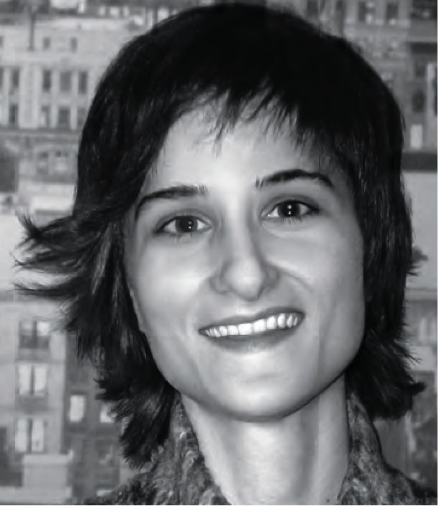 Vanessa Frias-Martinez is an assistant professor in the iSchool and an affiliate assistant professor in the Computer Science Department at the University of Maryland. She is the director of the Urban Computing Lab and a member of the CLIP Lab, the Center for Geospatial Information Science and the Maryland Population Research Center. At her lab, they focus on improving cities through digital footprints of human activity. The objective is to understand human behavior in urban environments using crowdsourced mobile and ubiquitous data. Her group develops computational tools that combine data mining and machine learning techniques to tackle urgent urban challenges in areas such as disaster management or transportation alternatives. Vanessa received her M.Sc. and Ph.D. degrees in Computer Science from Columbia University. From 2009 to 2013, she was a researcher in the Data Mining and User Modeling Group at Telefonica Research in Madrid, Spain.
Vanessa Frias-Martinez is an assistant professor in the iSchool and an affiliate assistant professor in the Computer Science Department at the University of Maryland. She is the director of the Urban Computing Lab and a member of the CLIP Lab, the Center for Geospatial Information Science and the Maryland Population Research Center. At her lab, they focus on improving cities through digital footprints of human activity. The objective is to understand human behavior in urban environments using crowdsourced mobile and ubiquitous data. Her group develops computational tools that combine data mining and machine learning techniques to tackle urgent urban challenges in areas such as disaster management or transportation alternatives. Vanessa received her M.Sc. and Ph.D. degrees in Computer Science from Columbia University. From 2009 to 2013, she was a researcher in the Data Mining and User Modeling Group at Telefonica Research in Madrid, Spain.
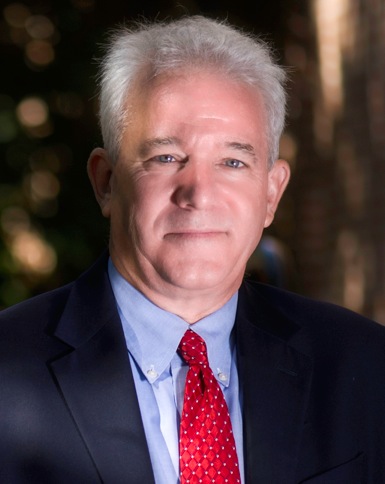 William Fulton is Director of the Kinder Institute for Urban Research at Rice University [kinder.rice.edu]. He is a former Mayor of Ventura, California, and Director of Planning & Economic Development for the City of San Diego. In his career, Mr. Fulton has also served as Vice President for Policy at Smart Growth America, Principal in the California-based urban planning firm now known as PlaceWorks, and Senior Fellow at the Sol Price School of Public Policy at the University of Southern California. He is the founding editor and publisher of California Planning & Development Report [www.cp-dr.com] and author of five books, including Guide to California Planning, the standard urban planning textbook in California, and The Reluctant Metropolis: The Politics of Urban Growth in Los Angeles, which was an L.A. Times best-seller. At the Kinder Institute, Fulton coordinates Rice’s research partnership with the City of Houston and its involvement with the MetroLab Network. Rice and Houston are currently exploring ways to use Smart City technology to improve both the city’s operations and its policymaking process. He holds master’s degrees in mass communication from The American University and urban planning from UCLA.
William Fulton is Director of the Kinder Institute for Urban Research at Rice University [kinder.rice.edu]. He is a former Mayor of Ventura, California, and Director of Planning & Economic Development for the City of San Diego. In his career, Mr. Fulton has also served as Vice President for Policy at Smart Growth America, Principal in the California-based urban planning firm now known as PlaceWorks, and Senior Fellow at the Sol Price School of Public Policy at the University of Southern California. He is the founding editor and publisher of California Planning & Development Report [www.cp-dr.com] and author of five books, including Guide to California Planning, the standard urban planning textbook in California, and The Reluctant Metropolis: The Politics of Urban Growth in Los Angeles, which was an L.A. Times best-seller. At the Kinder Institute, Fulton coordinates Rice’s research partnership with the City of Houston and its involvement with the MetroLab Network. Rice and Houston are currently exploring ways to use Smart City technology to improve both the city’s operations and its policymaking process. He holds master’s degrees in mass communication from The American University and urban planning from UCLA.
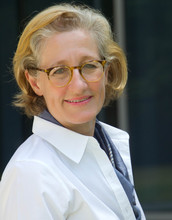 Deborah J. Goodings is a professor of geotechnical engineering. She is currently serving as the director of the Civil, Mechanical, and Manufacturing Innovation Division at the US National Science Foundation and is on leave from GMU during this IPA appointment. Dr. Goodings joined the Department of Civil, Environmental, and Infrastructure Engineering in the Volgenau School at George Mason University in 2009 as the Dewberry Professor and CEIE Department Chairman. Her prior appointment was as Professor of Geotechnical Engineering in the Department of Civil and Environmental Engineering at the University of Maryland. In addition to her teaching and research accomplishments, Dr. Goodings launched and co-directed, with the School of Public Policy, the Master of Engineering and Public Policy program; and initiated and led the award-winning UMD student chapter of Engineers Without Borders-USA. Her career accomplishments have been recognized with awards from the Department of the Army (Outstanding Civilian Service Medal); the National Research Council’s Transportation Research Board (Fred Burggraf Award; and Emerita Member status); the U.S. Universities Council on Geotechnical Engineering Research (Distinguished Service Award); Professional Engineers Ontario (the Engineering Medal for Engineering Excellence); and the University of Maryland (awards for teaching, and for faculty leadership of Engineers Without Borders-USA including creation of a faculty chair in her honor). She has served as a member of visiting and review committees to various organizations, some listed above. She is a Fellow of the American Society of Civil Engineers; a Diplomate, Geotechnical Engineering; a registered professional engineer in Ontario; and a By-Fellow of Churchill College, Cambridge University.
Deborah J. Goodings is a professor of geotechnical engineering. She is currently serving as the director of the Civil, Mechanical, and Manufacturing Innovation Division at the US National Science Foundation and is on leave from GMU during this IPA appointment. Dr. Goodings joined the Department of Civil, Environmental, and Infrastructure Engineering in the Volgenau School at George Mason University in 2009 as the Dewberry Professor and CEIE Department Chairman. Her prior appointment was as Professor of Geotechnical Engineering in the Department of Civil and Environmental Engineering at the University of Maryland. In addition to her teaching and research accomplishments, Dr. Goodings launched and co-directed, with the School of Public Policy, the Master of Engineering and Public Policy program; and initiated and led the award-winning UMD student chapter of Engineers Without Borders-USA. Her career accomplishments have been recognized with awards from the Department of the Army (Outstanding Civilian Service Medal); the National Research Council’s Transportation Research Board (Fred Burggraf Award; and Emerita Member status); the U.S. Universities Council on Geotechnical Engineering Research (Distinguished Service Award); Professional Engineers Ontario (the Engineering Medal for Engineering Excellence); and the University of Maryland (awards for teaching, and for faculty leadership of Engineers Without Borders-USA including creation of a faculty chair in her honor). She has served as a member of visiting and review committees to various organizations, some listed above. She is a Fellow of the American Society of Civil Engineers; a Diplomate, Geotechnical Engineering; a registered professional engineer in Ontario; and a By-Fellow of Churchill College, Cambridge University.
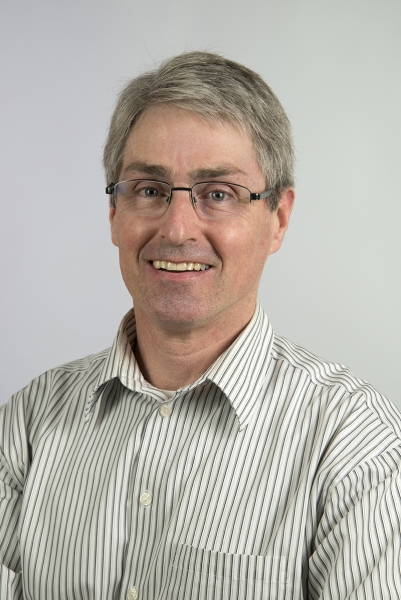 Casey Grant is the Executive Director for the Fire Protection Research Foundation (FPRF), a non-profit organization that works with the National Fire Protection Association (NFPA) as its research affiliate. Casey holds a Bachelor of Science degree from the University of Maryland and a Master of Science degree from Worcester Polytechnic Institute, both in Fire Protection Engineering. He is a Registered Professional Engineer in Fire Protection Engineering in the States of California and Tennessee, and is a member of both the Beta and Gamma Chapters of the Salamander Fire Protection Honorary Society. Casey is a Fellow of the Society of Fire Protection Engineers, a Fellow of the Institute of Fire Engineers, and has one fire protection related U.S. patent. Prior to joining the Research Foundation in 2007, Casey was the Secretary of the NFPA Standards Council and Assistant Chief Engineer. Of particular interest, Casey has been the primary author of the “Research Roadmap for Smart Fire Fighting” released in 2015, which is also NIST Special Publication 1191 (see: www.nfpa.org/SmartFireFighting). As a result of this effort, in late 2015 the FPRF and NFPA has successfully held related conferences such as the “Smart Home Summit” and the “Smart Enforcement Workshop” to further address this emerging topic area and to address fire safety and emergency response with all things “smart”.
Casey Grant is the Executive Director for the Fire Protection Research Foundation (FPRF), a non-profit organization that works with the National Fire Protection Association (NFPA) as its research affiliate. Casey holds a Bachelor of Science degree from the University of Maryland and a Master of Science degree from Worcester Polytechnic Institute, both in Fire Protection Engineering. He is a Registered Professional Engineer in Fire Protection Engineering in the States of California and Tennessee, and is a member of both the Beta and Gamma Chapters of the Salamander Fire Protection Honorary Society. Casey is a Fellow of the Society of Fire Protection Engineers, a Fellow of the Institute of Fire Engineers, and has one fire protection related U.S. patent. Prior to joining the Research Foundation in 2007, Casey was the Secretary of the NFPA Standards Council and Assistant Chief Engineer. Of particular interest, Casey has been the primary author of the “Research Roadmap for Smart Fire Fighting” released in 2015, which is also NIST Special Publication 1191 (see: www.nfpa.org/SmartFireFighting). As a result of this effort, in late 2015 the FPRF and NFPA has successfully held related conferences such as the “Smart Home Summit” and the “Smart Enforcement Workshop” to further address this emerging topic area and to address fire safety and emergency response with all things “smart”.
 Zachary (Zack) Hayden is a AAAS Science and Technology Policy Fellow in the Division of Computer and Network Systems at the National Science Foundation. He works on the Cyber-Physical Systems (CPS) program and on new initiatives related to Smart and Connected Communities (S&CC) and Innovations at the Nexus of Food, Energy, and Water Systems (INFEWS). Zack has a background in agricultural systems research-- investigating precision management of tillage, water, and nutrients to improve farmer profitability and reduce environmental impacts. He earned a B.S. in biology and environmental science from the College of William and Mary in Virginia, and his Ph.D. in horticulture from Michigan State University.
Zachary (Zack) Hayden is a AAAS Science and Technology Policy Fellow in the Division of Computer and Network Systems at the National Science Foundation. He works on the Cyber-Physical Systems (CPS) program and on new initiatives related to Smart and Connected Communities (S&CC) and Innovations at the Nexus of Food, Energy, and Water Systems (INFEWS). Zack has a background in agricultural systems research-- investigating precision management of tillage, water, and nutrients to improve farmer profitability and reduce environmental impacts. He earned a B.S. in biology and environmental science from the College of William and Mary in Virginia, and his Ph.D. in horticulture from Michigan State University.
 Petros A. Ioannou received the M.S. and Ph.D. degrees from the University of Illinois, Urbana, Illinois, in 1980 and 1982, respectively. In 1982, he joined the Department of Electrical Engineering, University of Southern California where he is currently a Professor and Director of the Center of Advanced Transportation Technologies and Associate Director for Research of METRANS, a University Transportation Center. He also holds a courtesy appointment with the Department of Aerospace and Mechanical Engineering and the Department of Industrial Systems Engineering. His research interests are in the areas of adaptive control and vehicle dynamics, Intelligent Transportation Systems (ITS) and urban transportation for freight and people. He is the recipient of the 1984 Paper Award by the IEEE Control System Society, the 1985 Presidential Young Investigator Award, the 2009 IEEE ITS Society Outstanding ITS Application Award, the 2009 IET Heaviside Medal for Achievement in Control, the 2012 IEEE ITS Society Outstanding ITS Research Award and the 2016 IEEE Transportation Technologies Award. He is a Fellow of IEEE, IFAC and IET and the author/co-author of 8 books and over 400 research papers in the areas of controls and intelligent transportation systems.
Petros A. Ioannou received the M.S. and Ph.D. degrees from the University of Illinois, Urbana, Illinois, in 1980 and 1982, respectively. In 1982, he joined the Department of Electrical Engineering, University of Southern California where he is currently a Professor and Director of the Center of Advanced Transportation Technologies and Associate Director for Research of METRANS, a University Transportation Center. He also holds a courtesy appointment with the Department of Aerospace and Mechanical Engineering and the Department of Industrial Systems Engineering. His research interests are in the areas of adaptive control and vehicle dynamics, Intelligent Transportation Systems (ITS) and urban transportation for freight and people. He is the recipient of the 1984 Paper Award by the IEEE Control System Society, the 1985 Presidential Young Investigator Award, the 2009 IEEE ITS Society Outstanding ITS Application Award, the 2009 IET Heaviside Medal for Achievement in Control, the 2012 IEEE ITS Society Outstanding ITS Research Award and the 2016 IEEE Transportation Technologies Award. He is a Fellow of IEEE, IFAC and IET and the author/co-author of 8 books and over 400 research papers in the areas of controls and intelligent transportation systems.
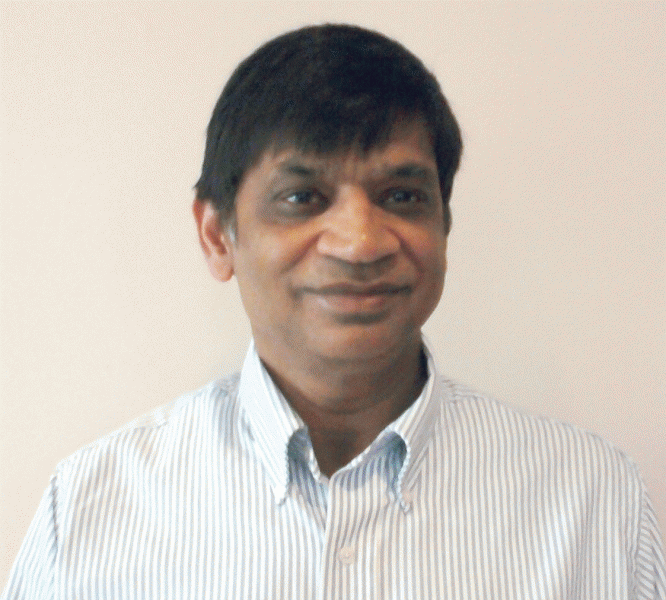 Krishna Kant is a professor in the Computer & Information Science department at Temple University. He served at NSF as a program director in CISE/CNS division from 2008 to 2013. Prior to NSF, he has served at Intel corp, Bellcore, Bell Labs, Penn State University, and Northwestern University, and carries a combined 34 years of research experience in academia, industry, and government. He is a Fellow of IEEE. At NSF, he was intimately involved in formulating and driving the SEES (science, engineering and education for sustainability) initiative since its inception, and helped develop many SEES solicitations involving CISE. He has a very broad research portfolio that includes sustainability issues in data center design, study of urban water distribution systems, and security/robustness in data centers and smart grid. His interest in smart cities are primarily in the area of smart distribution of perishable commodities such as fresh food. In particular, he studies the parallels between perishable commodity distribution and computer networks in order to derive insights that can enrich both fields. The goal of this research on the logistics side is to reduce spoilage and improve transportation efficiency of perishable commodities in the smart city context. As retired Director of the Center for International Programs at USDA's National Institute of Food and Agriculture, Hiram Larew maintained an active interest in urban food security needs. He worked with others to successfully introduce the concept of urban-rural food linkages into sustainable development discussions and policy frameworks at the UN, and has continued to track this vibrant but sometimes under-appreciated aspect of connected and healthy cities. During today's discussion, he'll present a few key points to consider as food security is included in research and education agendas.
Krishna Kant is a professor in the Computer & Information Science department at Temple University. He served at NSF as a program director in CISE/CNS division from 2008 to 2013. Prior to NSF, he has served at Intel corp, Bellcore, Bell Labs, Penn State University, and Northwestern University, and carries a combined 34 years of research experience in academia, industry, and government. He is a Fellow of IEEE. At NSF, he was intimately involved in formulating and driving the SEES (science, engineering and education for sustainability) initiative since its inception, and helped develop many SEES solicitations involving CISE. He has a very broad research portfolio that includes sustainability issues in data center design, study of urban water distribution systems, and security/robustness in data centers and smart grid. His interest in smart cities are primarily in the area of smart distribution of perishable commodities such as fresh food. In particular, he studies the parallels between perishable commodity distribution and computer networks in order to derive insights that can enrich both fields. The goal of this research on the logistics side is to reduce spoilage and improve transportation efficiency of perishable commodities in the smart city context. As retired Director of the Center for International Programs at USDA's National Institute of Food and Agriculture, Hiram Larew maintained an active interest in urban food security needs. He worked with others to successfully introduce the concept of urban-rural food linkages into sustainable development discussions and policy frameworks at the UN, and has continued to track this vibrant but sometimes under-appreciated aspect of connected and healthy cities. During today's discussion, he'll present a few key points to consider as food security is included in research and education agendas.
 Sertac Karaman is the Charles Stark Draper Assistant Professor of Aeronautics and Astronautics at the Massachusetts Institute of Technology (since Fall 2012). He has obtained B.S. degrees in mechanical engineering and in computer engineering from the Istanbul Technical University, Turkey, in 2007; an S.M. degree in mechanical engineering from MIT in 2009; and a Ph.D. degree in electrical engineering and computer science also from MIT in 2012. His research interests lie in the broad areas of robotics and control theory. In particular, he studies the applications of probability theory, stochastic processes, stochastic geometry, formal methods, and optimization for the design and analysis of high-performance cyber-physical systems. The application areas of his research include driverless cars, unmanned aerial vehicles, distributed aerial surveillance systems, air traffic control, certification and verification of control systems software, and many others. He is the recipient of an Army Research Office Young Investigator Award in 2015, National Science Foundation Faculty Career Development (CAREER) Award in 2014, AIAA Wright Brothers Graduate Award in 2012, and an NVIDIA Fellowship in 2011.
Sertac Karaman is the Charles Stark Draper Assistant Professor of Aeronautics and Astronautics at the Massachusetts Institute of Technology (since Fall 2012). He has obtained B.S. degrees in mechanical engineering and in computer engineering from the Istanbul Technical University, Turkey, in 2007; an S.M. degree in mechanical engineering from MIT in 2009; and a Ph.D. degree in electrical engineering and computer science also from MIT in 2012. His research interests lie in the broad areas of robotics and control theory. In particular, he studies the applications of probability theory, stochastic processes, stochastic geometry, formal methods, and optimization for the design and analysis of high-performance cyber-physical systems. The application areas of his research include driverless cars, unmanned aerial vehicles, distributed aerial surveillance systems, air traffic control, certification and verification of control systems software, and many others. He is the recipient of an Army Research Office Young Investigator Award in 2015, National Science Foundation Faculty Career Development (CAREER) Award in 2014, AIAA Wright Brothers Graduate Award in 2012, and an NVIDIA Fellowship in 2011.
 Anthony (Eamonn) Kelly received his PhD in educational psychology from Stanford University. He is currently serving as senior advisor to the Assistant Director of the Directorate for Education and Human Resources at NSF, on rotation from George Mason University, where he is a professor of educational psychology.
Anthony (Eamonn) Kelly received his PhD in educational psychology from Stanford University. He is currently serving as senior advisor to the Assistant Director of the Directorate for Education and Human Resources at NSF, on rotation from George Mason University, where he is a professor of educational psychology.
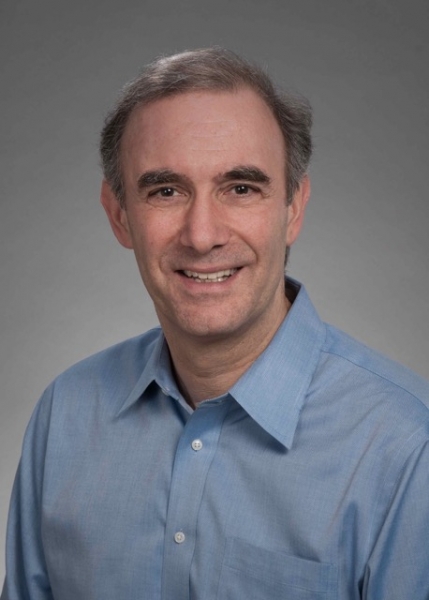 Daniel S. Kirschen is the Donald W. and Ruth Mary Close Professor of Electrical Engineering at the University of Washington. His research focuses on the integration of renewable energy sources in the grid, power system economics and power system resilience. Prior to joining the University of Washington, he taught for 16 years at The University of Manchester (UK). Before becoming an academic, Daniel worked for Control Data and Siemens on the development of application software for utility control centres. He holds a PhD and an MS from the University of Wisconsin and an Electro-Mechanical Engineering degree from the Free University of Brussels (Belgium). He is the author of two books and a Fellow of the IEEE.
Daniel S. Kirschen is the Donald W. and Ruth Mary Close Professor of Electrical Engineering at the University of Washington. His research focuses on the integration of renewable energy sources in the grid, power system economics and power system resilience. Prior to joining the University of Washington, he taught for 16 years at The University of Manchester (UK). Before becoming an academic, Daniel worked for Control Data and Siemens on the development of application software for utility control centres. He holds a PhD and an MS from the University of Wisconsin and an Electro-Mechanical Engineering degree from the Free University of Brussels (Belgium). He is the author of two books and a Fellow of the IEEE.
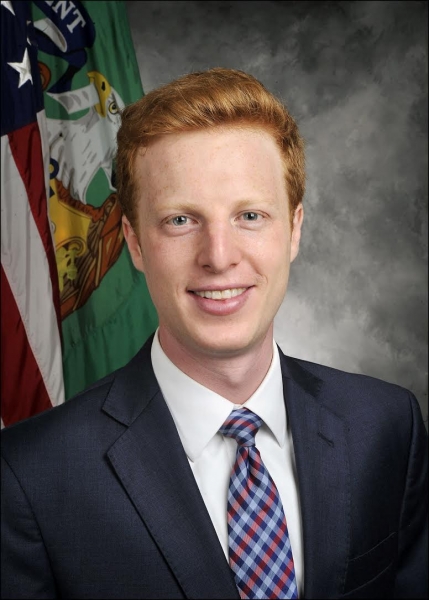 Ben Levine is the Interim Director of MetroLab Network, a recently-launched network of more than 20 city-university partnerships focused on research, development, and deployment of technologically‐ and analytically‐based solutions to improve infrastructure and city services. Ben joined MetroLab Network after three years at the U.S. Department of the Treasury, where he focused on infrastructure policy and state and local government finance issues. Prior to Treasury, he was at Morgan Stanley, where he worked on capital markets transactions for public sector clients. Ben has a B.S. in Economics from the Wharton School at the University of Pennsylvania.
Ben Levine is the Interim Director of MetroLab Network, a recently-launched network of more than 20 city-university partnerships focused on research, development, and deployment of technologically‐ and analytically‐based solutions to improve infrastructure and city services. Ben joined MetroLab Network after three years at the U.S. Department of the Treasury, where he focused on infrastructure policy and state and local government finance issues. Prior to Treasury, he was at Morgan Stanley, where he worked on capital markets transactions for public sector clients. Ben has a B.S. in Economics from the Wharton School at the University of Pennsylvania.
 Fang-Pang Lin is the Director of Cloud Computing and System Integration Division at National Center for High Performance Computing. He is one of the key developers for developing the national cyber-infrastructure of Taiwan, namely Knowledge Innovation National Grid. He co-founded the Global Lake Ecological Observational Network and Global Coral Reef Environmental Observational Network. His major research focuses on cyberinfrastructure for long term environmental and ecological observation. Recent development includes Taiwan Earth Science Observatory Knowledgebase, EU FP7 Fish4Knowledge collaboration, real-time wide area flood monitoring and government big data. The efforts also lead to US-East Asia collaborations to enable transnational cyberinfrastructure applications, which based on shared software defined systems applying to issues on disaster management, environmental monitoring and simulation, and smart cities. Dr. Fang-Pang Lin obtained his PhD in University of Wales at Swansea, UK. He worked in Rolls-Royce University Computing Center in Oxford University for his postdoctoral research. He joined NCHC in Oct., 1997 and has been working in numerical simulation and software engineering regarding application integration. He was the winner of 2006 Outstanding Achievement Award in Science and Technology, the Executive Yuan of Taiwan.
Fang-Pang Lin is the Director of Cloud Computing and System Integration Division at National Center for High Performance Computing. He is one of the key developers for developing the national cyber-infrastructure of Taiwan, namely Knowledge Innovation National Grid. He co-founded the Global Lake Ecological Observational Network and Global Coral Reef Environmental Observational Network. His major research focuses on cyberinfrastructure for long term environmental and ecological observation. Recent development includes Taiwan Earth Science Observatory Knowledgebase, EU FP7 Fish4Knowledge collaboration, real-time wide area flood monitoring and government big data. The efforts also lead to US-East Asia collaborations to enable transnational cyberinfrastructure applications, which based on shared software defined systems applying to issues on disaster management, environmental monitoring and simulation, and smart cities. Dr. Fang-Pang Lin obtained his PhD in University of Wales at Swansea, UK. He worked in Rolls-Royce University Computing Center in Oxford University for his postdoctoral research. He joined NCHC in Oct., 1997 and has been working in numerical simulation and software engineering regarding application integration. He was the winner of 2006 Outstanding Achievement Award in Science and Technology, the Executive Yuan of Taiwan.
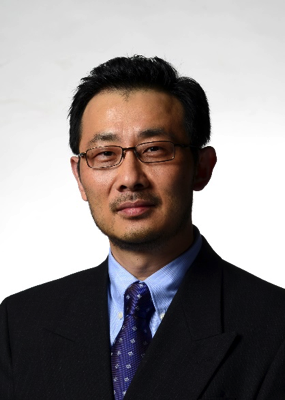 Hui Liu is a Chair Professor and the Associate Dean of School of Electronic, Information & Electrical Engineering (SEIEE) at Shanghai Jiao Tong University. He received his B.S. in 1988 from Fudan University, Shanghai, China, and a Ph.D. degree in 1995 from the Univ. of Texas at Austin, all in electrical engineering. Dr. Liu was one of the principal designers of the 3G TD-SCDMA mobile technologies, and the founder of Adaptix which pioneered the development of OFDMA-based mobile broadband networks (mobile WiMAX and 4G LTE). His research interests include broadband wireless networks, array signal processing, digital broadcasting, and multimedia signal processing. Dr. Liu has published more than 60 journal articles (H-index = 47), 2 textbooks, and has over 70 awarded patents. He was selected Fellow of IEEE for contributions to global standards for broadband cellular and mobile broadcasting. He is the General Chairman for the 2005 Asilomar conference on Signals, Systems, and Computers and the 2014 IEEE/CIC International Conference on Communications in China (ICCC14). He is a recipient of 1997 National Science Foundation (NSF) CAREER Award, the Gold Prize Patent Award in China, 3 IEEE best conference paper awards, and 2000 Office of Naval Research (ONR) Young Investigator Award.
Hui Liu is a Chair Professor and the Associate Dean of School of Electronic, Information & Electrical Engineering (SEIEE) at Shanghai Jiao Tong University. He received his B.S. in 1988 from Fudan University, Shanghai, China, and a Ph.D. degree in 1995 from the Univ. of Texas at Austin, all in electrical engineering. Dr. Liu was one of the principal designers of the 3G TD-SCDMA mobile technologies, and the founder of Adaptix which pioneered the development of OFDMA-based mobile broadband networks (mobile WiMAX and 4G LTE). His research interests include broadband wireless networks, array signal processing, digital broadcasting, and multimedia signal processing. Dr. Liu has published more than 60 journal articles (H-index = 47), 2 textbooks, and has over 70 awarded patents. He was selected Fellow of IEEE for contributions to global standards for broadband cellular and mobile broadcasting. He is the General Chairman for the 2005 Asilomar conference on Signals, Systems, and Computers and the 2014 IEEE/CIC International Conference on Communications in China (ICCC14). He is a recipient of 1997 National Science Foundation (NSF) CAREER Award, the Gold Prize Patent Award in China, 3 IEEE best conference paper awards, and 2000 Office of Naval Research (ONR) Young Investigator Award.
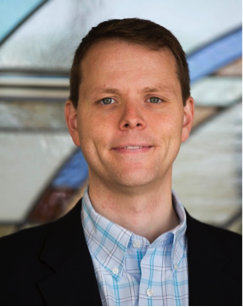 Jerome Lynch is a Professor of Civil and Environmental Engineering at the University of Michigan; he is also a Professor of Electrical Engineering and Computer Science. Dr. Lynch completed his graduate studies at Stanford University where he received his Ph.D. in Civil and Environmental Engineering in 2002, M.S. in Civil and Environmental Engineering in 1998, and M.S. in Electrical Engineering in 2003. Prior to attending Stanford, Dr. Lynch received his B.E. in Civil and Environmental Engineering from the Cooper Union in 1997. His research interests are in the areas of wireless cyber-physical systems, cyberinfrastructure tools for analytics on civil infrastructure monitoring datasets, and data-driven decision support systems for infrastructure asset management. The University of Michigan has recently established the Institute for Cyber-Urban Systems of which Dr. Lynch serves as Director. Dr. Lynch has been awarded the 2005 ONR Young Investigator Award, 2009 NSF CAREER Award, 2009 Presidential Early Career Award for Scientists and Engineers (PECASE), 2012 ASCE EMI Leonardo da Vinci Award and 2014 ASCE Huber Award.
Jerome Lynch is a Professor of Civil and Environmental Engineering at the University of Michigan; he is also a Professor of Electrical Engineering and Computer Science. Dr. Lynch completed his graduate studies at Stanford University where he received his Ph.D. in Civil and Environmental Engineering in 2002, M.S. in Civil and Environmental Engineering in 1998, and M.S. in Electrical Engineering in 2003. Prior to attending Stanford, Dr. Lynch received his B.E. in Civil and Environmental Engineering from the Cooper Union in 1997. His research interests are in the areas of wireless cyber-physical systems, cyberinfrastructure tools for analytics on civil infrastructure monitoring datasets, and data-driven decision support systems for infrastructure asset management. The University of Michigan has recently established the Institute for Cyber-Urban Systems of which Dr. Lynch serves as Director. Dr. Lynch has been awarded the 2005 ONR Young Investigator Award, 2009 NSF CAREER Award, 2009 Presidential Early Career Award for Scientists and Engineers (PECASE), 2012 ASCE EMI Leonardo da Vinci Award and 2014 ASCE Huber Award.
 Michael Mattmiller was confirmed as Chief Technology Officer for the City of Seattle in June 2014. In his time at the City, Michael has championed efforts to connect people with their government, increase the productivity of the City workforce through technology, and programs to make Seattle a leader in digital equity. He led the creation of a City-wide privacy program to build public trust in how their municipal government collects and uses their personal information, and a broadband program that has led to increased availability of fiber-to-the-home gigabit broadband service throughout the city. Michael is excited to engage the University of Washington and a broad set of stakeholders to help improve our community life through data and technology.
Prior to his role at the City, Michael served as a senior strategist at Microsoft and as a consultant to the federal government at PricewaterhouseCoopers. He received a B.B.A. and M.S. in Information Systems Development at The George Washington University.
Michael Mattmiller was confirmed as Chief Technology Officer for the City of Seattle in June 2014. In his time at the City, Michael has championed efforts to connect people with their government, increase the productivity of the City workforce through technology, and programs to make Seattle a leader in digital equity. He led the creation of a City-wide privacy program to build public trust in how their municipal government collects and uses their personal information, and a broadband program that has led to increased availability of fiber-to-the-home gigabit broadband service throughout the city. Michael is excited to engage the University of Washington and a broad set of stakeholders to help improve our community life through data and technology.
Prior to his role at the City, Michael served as a senior strategist at Microsoft and as a consultant to the federal government at PricewaterhouseCoopers. He received a B.B.A. and M.S. in Information Systems Development at The George Washington University.
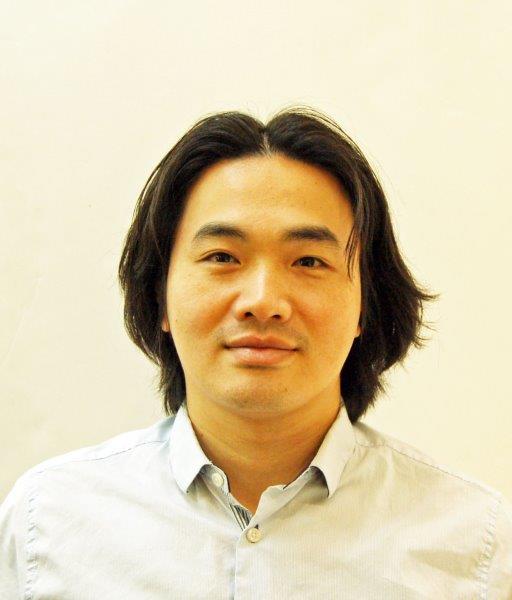 Tho Nguyen is the Senior Research Program Officer for the Computer Science Department, and Managing Director of the Center for Automata Processing at the University of Virginia. He is primarily responsible for program development and organizing major research initiatives in cyberinfrastructure and data analytics. Prior to joining UVa, Dr. Nguyen served as a AAAS Fellow appointed to the National Science Foundation where he worked on the Cyber-Physical Systems Program. Dr. Nguyen is an affiliate faculty in the Department of Electrical Engineering at the University of Washington (where he also graduated from in 2009).
Tho Nguyen is the Senior Research Program Officer for the Computer Science Department, and Managing Director of the Center for Automata Processing at the University of Virginia. He is primarily responsible for program development and organizing major research initiatives in cyberinfrastructure and data analytics. Prior to joining UVa, Dr. Nguyen served as a AAAS Fellow appointed to the National Science Foundation where he worked on the Cyber-Physical Systems Program. Dr. Nguyen is an affiliate faculty in the Department of Electrical Engineering at the University of Washington (where he also graduated from in 2009).
Sabine O'Hara is Dean and Director of Landgrant Programs for the College of Agriculture, Urban Sustainability and Environmental Sciences (CAUSES) of the University of the District of Columbia (UDC). As Dean of CAUSES, she is responsible for academic, research and community outreach programs in the tradition of land grant universities, and is leading UDCs efforts to building a cutting edge model for urban agriculture that improves the quality of life and economic opportunity for urban populations. Dr. O’Hara is a respected author, researcher and higher education executive, and is well known for her expertise in sustainable economic development, global education and executive leadership. She has experience in virtually every aspect of university administration including curriculum development, strategic planning, program accreditation, international partnerships and research collaborations. Dr. O'Hara is a strong advocate of higher education who believes that education cannot merely provide answers to our questions, but must also question our answers. She is the founder of Global Ecology LLC, the 10th President of Roanoke College in Salem, Virginia, and held faculty and administrative positions at: Concordia College, Moorhead, Minnesota; Green Mountain College, Poultney, Vermont; Rensselaer Polytechnic Institute, Troy, New York; and Executive Director of the Council for International Exchange of Scholars, a preeminent international exchange organization that administers the Fulbright Scholar Program. A native of Germany, Dr. O'Hara earned a doctorate in environmental economics and a master's degree in agricultural economics from the University of Göttingen. She serves on the board of directors of several national and international organizations including as President of the International Society for Ecological Economics, International Advisory Board member of King Abdul-Aziz University in Jeddah, Saudi Arabia, and is a reviewer and editorial board member of several academic journals.
 Shwetak N. Patel is the Washington Research Foundation Entrepreneurship Endowed Professor in Computer Science & Engineering and Electrical Engineering at the University of Washington, where he directs his research group, the Ubicomp Lab. His research interests are in the areas of Human-Computer Interaction, Ubiquitous Computing, Sensor-enabled Embedded Systems, and User Interface Software and Technology. His work includes developing new sensing systems, energy and water sensing, mobile health, and developing new interaction technologies. Dr. Patel was a founder of Zensi, Inc., a residential energy monitoring company, which was acquired by Belkin, Inc in 2010. He is also a co-founder of a low-power wireless sensor platform company called SNUPI Technologies and a consumer home sensing product called WallyHome. WallyHome was acquired by Sears in 2015. He received his Ph.D. in Computer Science from the Georgia Institute of Technology in 2008 and B.S. in Computer Science in 2003. Dr. Patel is a recipient of a MacArthur Fellowship (2011), Microsoft Research Faculty Fellowship (2011), Sloan Fellowship (2012), TR-35 Award (2009), World Economic Forum Young Global Scientist Award (2013), and an NSF Career Award (2013).
Shwetak N. Patel is the Washington Research Foundation Entrepreneurship Endowed Professor in Computer Science & Engineering and Electrical Engineering at the University of Washington, where he directs his research group, the Ubicomp Lab. His research interests are in the areas of Human-Computer Interaction, Ubiquitous Computing, Sensor-enabled Embedded Systems, and User Interface Software and Technology. His work includes developing new sensing systems, energy and water sensing, mobile health, and developing new interaction technologies. Dr. Patel was a founder of Zensi, Inc., a residential energy monitoring company, which was acquired by Belkin, Inc in 2010. He is also a co-founder of a low-power wireless sensor platform company called SNUPI Technologies and a consumer home sensing product called WallyHome. WallyHome was acquired by Sears in 2015. He received his Ph.D. in Computer Science from the Georgia Institute of Technology in 2008 and B.S. in Computer Science in 2003. Dr. Patel is a recipient of a MacArthur Fellowship (2011), Microsoft Research Faculty Fellowship (2011), Sloan Fellowship (2012), TR-35 Award (2009), World Economic Forum Young Global Scientist Award (2013), and an NSF Career Award (2013).
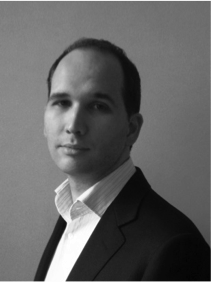 Jan Peelen (The Netherlands) is a policy advisor at the Royal Netherlands Embassy in Washington D.C. He represents the Dutch Ministry of Infrastructure & the Environment and its executive agency, Rijkswaterstaat in the USA. His portfolio contains the topics of smart cities & urban planning, climate adaptation, water, energy and infrastructure. He holds a Master of Science degree in Urban & Regional Planning from the University of Amsterdam and is an ELEEP Alumni. Jan has a vast experience with the development of transportation & energy infrastructure in densely populated areas. He knows how to connect different professions and interest groups and translate their needs into a common language that enables projects to move forward. Smart and Connected Communities are an important part of his daily work: “Smart City Technology and IoT have the potential to unlock opportunities for a more sustainable economy, create new ways for citizens to interact with each other and government agencies and enable us to manage assets and services more efficient. That makes it a vital asset for the realization of almost every government policy. I try to leverage the development and accessibility of this technology through international collaboration”.
Jan Peelen (The Netherlands) is a policy advisor at the Royal Netherlands Embassy in Washington D.C. He represents the Dutch Ministry of Infrastructure & the Environment and its executive agency, Rijkswaterstaat in the USA. His portfolio contains the topics of smart cities & urban planning, climate adaptation, water, energy and infrastructure. He holds a Master of Science degree in Urban & Regional Planning from the University of Amsterdam and is an ELEEP Alumni. Jan has a vast experience with the development of transportation & energy infrastructure in densely populated areas. He knows how to connect different professions and interest groups and translate their needs into a common language that enables projects to move forward. Smart and Connected Communities are an important part of his daily work: “Smart City Technology and IoT have the potential to unlock opportunities for a more sustainable economy, create new ways for citizens to interact with each other and government agencies and enable us to manage assets and services more efficient. That makes it a vital asset for the realization of almost every government policy. I try to leverage the development and accessibility of this technology through international collaboration”.
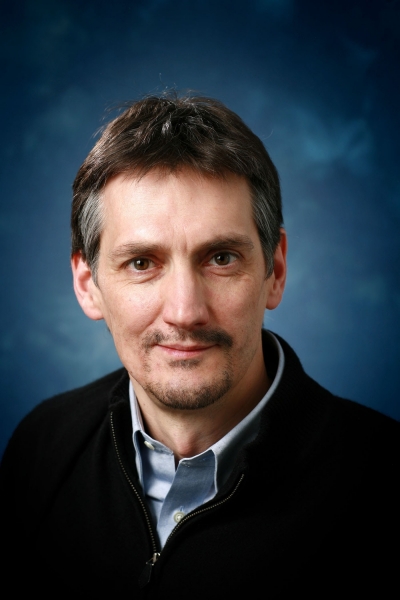 Wilfred Pinfold is working with the Office of Research and Strategic Partnerships and the Maseeh College of Engineering at Portland State University to establish a center for Smart Cities and Metro Data Science. Dr Pinfold recently retired from a 23 year career at Intel where he held positions leading extreme scale computing and smart city programs. He has more than 30 years of experience in computational and data science. He is the Mayor’s representative on Portland Citizen’s Technology Oversight committee and has worked with the city of Portland, Portland State University, NIST, OSTP, US Ignite and local business leaders to advance a smart city agenda. He has held several board positions including being on the Board of Directors of DCS Corporation for 12 years and the Board of Trustees of Oregon College of Art and Craft since 2011 where he is currently board chair. Wilfred Pinfold received his Ph.D. in Computational Fluid Dynamics from the University of Strathclyde, Glasgow. He held the North Sea lecturer ship at Glasgow University where he taught Naval Architecture and Aerodynamics. He is on the adjunct faculty at Portland State University where he co-teaches an MBA class in Innovation and Entrepreneurship.
Wilfred Pinfold is working with the Office of Research and Strategic Partnerships and the Maseeh College of Engineering at Portland State University to establish a center for Smart Cities and Metro Data Science. Dr Pinfold recently retired from a 23 year career at Intel where he held positions leading extreme scale computing and smart city programs. He has more than 30 years of experience in computational and data science. He is the Mayor’s representative on Portland Citizen’s Technology Oversight committee and has worked with the city of Portland, Portland State University, NIST, OSTP, US Ignite and local business leaders to advance a smart city agenda. He has held several board positions including being on the Board of Directors of DCS Corporation for 12 years and the Board of Trustees of Oregon College of Art and Craft since 2011 where he is currently board chair. Wilfred Pinfold received his Ph.D. in Computational Fluid Dynamics from the University of Strathclyde, Glasgow. He held the North Sea lecturer ship at Glasgow University where he taught Naval Architecture and Aerodynamics. He is on the adjunct faculty at Portland State University where he co-teaches an MBA class in Innovation and Entrepreneurship.
 Yuri Podpaly studied Physics and Nuclear Science and Engineering, focusing on plasma physics and fusion energy, at the Massachusetts Institute of Technology for both his undergraduate and graduate education. After receiving his Ph.D. in 2012, he came to the National Institute of Standards and Technology on a National Research Council postdoctoral fellowship as an experimentalist working on precision atomic spectroscopy. Yuri's research has included work on rotation and transport in plasmas, conceptual fusion reactor design, X-ray and EUV precision spectroscopy, and atomic physics. His curiosity about next generation energy sources, power distribution, and efficient use of scientific resources drew him to the science policy field. He is currently an AAAS Science and Technology Policy Fellow at the National Science Foundation in the Division of Electrical, Communications, and Cyber Systems (ECCS). He is interested in the fundamental long-term research questions inherent in Smart & Connected Communities.
Yuri Podpaly studied Physics and Nuclear Science and Engineering, focusing on plasma physics and fusion energy, at the Massachusetts Institute of Technology for both his undergraduate and graduate education. After receiving his Ph.D. in 2012, he came to the National Institute of Standards and Technology on a National Research Council postdoctoral fellowship as an experimentalist working on precision atomic spectroscopy. Yuri's research has included work on rotation and transport in plasmas, conceptual fusion reactor design, X-ray and EUV precision spectroscopy, and atomic physics. His curiosity about next generation energy sources, power distribution, and efficient use of scientific resources drew him to the science policy field. He is currently an AAAS Science and Technology Policy Fellow at the National Science Foundation in the Division of Electrical, Communications, and Cyber Systems (ECCS). He is interested in the fundamental long-term research questions inherent in Smart & Connected Communities.
 Radha Poovendran joined UW EE in 2000. In 2001, he became the founding director of the UW EE Network Security Lab. He is also a founding member and the associate director of research of the UW Center for Excellence in Information Assurance Research and Education, as well as an adjunct professor of aeronautics and astronautics. His research interests are in the areas of wireless and sensor network security, adversarial modeling, privacy and anonymity in public wireless networks, and cyber-physical systems security. Prof. Poovendran became Chair of UW EE in January 2015.
Radha Poovendran joined UW EE in 2000. In 2001, he became the founding director of the UW EE Network Security Lab. He is also a founding member and the associate director of research of the UW Center for Excellence in Information Assurance Research and Education, as well as an adjunct professor of aeronautics and astronautics. His research interests are in the areas of wireless and sensor network security, adversarial modeling, privacy and anonymity in public wireless networks, and cyber-physical systems security. Prof. Poovendran became Chair of UW EE in January 2015.
 Sandeep Purao is a Trustee Professor in the Information and Process Management Group at Bentley University. He joined Bentley from the College of Information Sciences and Technology at Penn State University. Prior to joining Penn State, he was on the faculty at the Business School, Georgia State University. His research focuses on the design and evolution of complex techno-organizational systems; and the sciences of design. In 2014, he received the Pioneer Award from the Design Science Research community. His work has been published in journals such as MIS Quarterly, Communications of the ACM, various IEEE Transactions, ACM Computing Surveys, and Information Systems Research; and conferences such as International Conference on Information Systems, IEEE Service-oriented Computing Conference, and International Conference on Conceptual Modeling. He serves or has served in Editorial capacities for Information Systems Research, MIS Quarterly, Journal of the AIS, European Journal of Information Systems, and Scandinavian Journal of Information Systems. He has held leadership roles in conferences such as IEEE Services, Conference on Conceptual Modeling, Workshop on Information Technologies and Systems and the Design Science Research Conference. His research has been funded by National Science Foundation, Foundations and Industry Consortia. He holds a PhD in Management Information Systems from the University of Wisconsin-Milwaukee. He is a member of AIS, ACM, IEEE. My research interests in the context of Smart Cities are related to Values, and their influence on the design of smart city solutions. This is a complex space that requires an understanding of values at several levels such as individuals, communities and regions as well as how the synergies and conflicts across these values. A number of philosophical perspectives provide the basis for this investigation, including the idea of “the just city” as well as numerous views about what constitutes “justice” – both at the level of institutions and individuals. Translating our understanding into actionable guidelines for designers and policy makers is yet another piece of the puzzle in this research program. Such a translation is not the same as requirements gathering or trade-offs in the familiar language of software engineering. Instead, it requires that we bridge the gap from thinking about the collective of millions and a focus on institutions to one that is aimed at individual citizens and lives. Some of the work we have completed so far includes conceptual investigations and prescriptive approaches that may guide the design and deployment of appropriate citizen services. Much work still remains to be done including empirical investigations of how values may be surfaced, how they may influence smart city initiatives and how such influence may be assessed. I envision a future that allows policy makers and designers of smart city solutions to front-load ethics and values in their work to prioritize projects and shape design, as well as justify and assess their decisions based on systematic use of criteria beyond the economics of costs and efficient use of resources.
Sandeep Purao is a Trustee Professor in the Information and Process Management Group at Bentley University. He joined Bentley from the College of Information Sciences and Technology at Penn State University. Prior to joining Penn State, he was on the faculty at the Business School, Georgia State University. His research focuses on the design and evolution of complex techno-organizational systems; and the sciences of design. In 2014, he received the Pioneer Award from the Design Science Research community. His work has been published in journals such as MIS Quarterly, Communications of the ACM, various IEEE Transactions, ACM Computing Surveys, and Information Systems Research; and conferences such as International Conference on Information Systems, IEEE Service-oriented Computing Conference, and International Conference on Conceptual Modeling. He serves or has served in Editorial capacities for Information Systems Research, MIS Quarterly, Journal of the AIS, European Journal of Information Systems, and Scandinavian Journal of Information Systems. He has held leadership roles in conferences such as IEEE Services, Conference on Conceptual Modeling, Workshop on Information Technologies and Systems and the Design Science Research Conference. His research has been funded by National Science Foundation, Foundations and Industry Consortia. He holds a PhD in Management Information Systems from the University of Wisconsin-Milwaukee. He is a member of AIS, ACM, IEEE. My research interests in the context of Smart Cities are related to Values, and their influence on the design of smart city solutions. This is a complex space that requires an understanding of values at several levels such as individuals, communities and regions as well as how the synergies and conflicts across these values. A number of philosophical perspectives provide the basis for this investigation, including the idea of “the just city” as well as numerous views about what constitutes “justice” – both at the level of institutions and individuals. Translating our understanding into actionable guidelines for designers and policy makers is yet another piece of the puzzle in this research program. Such a translation is not the same as requirements gathering or trade-offs in the familiar language of software engineering. Instead, it requires that we bridge the gap from thinking about the collective of millions and a focus on institutions to one that is aimed at individual citizens and lives. Some of the work we have completed so far includes conceptual investigations and prescriptive approaches that may guide the design and deployment of appropriate citizen services. Much work still remains to be done including empirical investigations of how values may be surfaced, how they may influence smart city initiatives and how such influence may be assessed. I envision a future that allows policy makers and designers of smart city solutions to front-load ethics and values in their work to prioritize projects and shape design, as well as justify and assess their decisions based on systematic use of criteria beyond the economics of costs and efficient use of resources.
Lillian Ratliff is currently a Postdoctoral Researcher in Electrical Engineering and Computer Sciences at UC Berkeley where she also obtained her Ph.D. in 2015. Her research interests lie at the intersection of game theory, optimization, and statistical learning. She applies tools from these domains to address inefficiencies and vulnerabilities in next-generation urban infrastructure systems. As an example, she uses game theory to model the incentive structure (players and their motivations) of the emerging data market in smart, connected infrastructure and develops learning and optimization schemes to address inefficiencies that arise in this market due to asymmetric information between the market participants. She is the recipient of a National Science Foundation Graduate Research Fellowship and will be an Assistant Professor in Electrical Engineering at the University of Washington starting Fall, 2016.
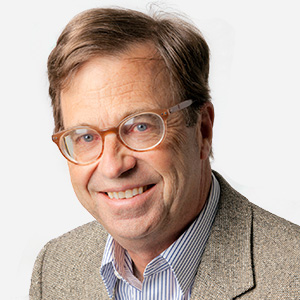 John Reagh (pronounced “Ray”) is a managing director at WRF Capital, the venture investing arm of Washington Research Foundation. Mr. Reagh focuses on investments in advanced materials, electronics and information technology, including software, semiconductor and internet-related applications.Mr. Reagh has helped to finance numerous companies at WRF Capital, including Farecast (acquired by Microsoft), Lumera (NasdaqNM: LMRA), Numinous Technologies (acquired by Microsoft), Decide.com (acquired by eBay) and Performant (acquired by Mercury Interactive). Mr. Reagh currently oversees WRF Capital’s investments in EnerG2, MicroGREEN Polymers, SNUPI Technologies, Qazzow, Nimbic and Skytap. Mr. Reagh received a J.D. from the University of Chicago Law School and a bachelor of science in physics from Stanford University. He has been admitted to the bar of the State of Washington, the U.S. District Court for the Western District of Washington and the U.S. Bankruptcy Court.
John Reagh (pronounced “Ray”) is a managing director at WRF Capital, the venture investing arm of Washington Research Foundation. Mr. Reagh focuses on investments in advanced materials, electronics and information technology, including software, semiconductor and internet-related applications.Mr. Reagh has helped to finance numerous companies at WRF Capital, including Farecast (acquired by Microsoft), Lumera (NasdaqNM: LMRA), Numinous Technologies (acquired by Microsoft), Decide.com (acquired by eBay) and Performant (acquired by Mercury Interactive). Mr. Reagh currently oversees WRF Capital’s investments in EnerG2, MicroGREEN Polymers, SNUPI Technologies, Qazzow, Nimbic and Skytap. Mr. Reagh received a J.D. from the University of Chicago Law School and a bachelor of science in physics from Stanford University. He has been admitted to the bar of the State of Washington, the U.S. District Court for the Western District of Washington and the U.S. Bankruptcy Court.
 Sokwoo Rhee is Associate Director of Cyber-Physical Systems Program at the National Institute of Standards and Technology (NIST). He is currently leading the Global City Teams Challenge (GCTC) which aims to create a replicable and scalable model for collaborative incubation and deployment of Internet of Things (IoT) and Cyber-Physical Systems (CPS) solutions to improve the quality of life in smart cities around the world. He previously served as a Presidential Innovation Fellow on CPS, a program by the White House Office of Science and Technology Policy. During his fellowship, he co-led the SmartAmerica Challenge, which brought together IoT technologies and CPS across the nation to demonstrate how they can provide concrete examples of the socio-economic benefits. Prior to joining US government, he was Co-founder and CTO of Millennial Net, Inc., which was one of the first to successfully commercialize low-power wireless mesh/sensor network and Internet of Things technology from academia. His work and achievements have been recognized through awards including MIT Technology Review’s Top Innovators under 35 and Red Herring’s Top 5 Innovators. He holds more than a dozen US and International patents and numerous publications on wireless networks, biomedical sensors and embedded systems. He received his M.S. and Ph.D. in Mechanical Engineering from Massachusetts Institute of Technology.
Sokwoo Rhee is Associate Director of Cyber-Physical Systems Program at the National Institute of Standards and Technology (NIST). He is currently leading the Global City Teams Challenge (GCTC) which aims to create a replicable and scalable model for collaborative incubation and deployment of Internet of Things (IoT) and Cyber-Physical Systems (CPS) solutions to improve the quality of life in smart cities around the world. He previously served as a Presidential Innovation Fellow on CPS, a program by the White House Office of Science and Technology Policy. During his fellowship, he co-led the SmartAmerica Challenge, which brought together IoT technologies and CPS across the nation to demonstrate how they can provide concrete examples of the socio-economic benefits. Prior to joining US government, he was Co-founder and CTO of Millennial Net, Inc., which was one of the first to successfully commercialize low-power wireless mesh/sensor network and Internet of Things technology from academia. His work and achievements have been recognized through awards including MIT Technology Review’s Top Innovators under 35 and Red Herring’s Top 5 Innovators. He holds more than a dozen US and International patents and numerous publications on wireless networks, biomedical sensors and embedded systems. He received his M.S. and Ph.D. in Mechanical Engineering from Massachusetts Institute of Technology.
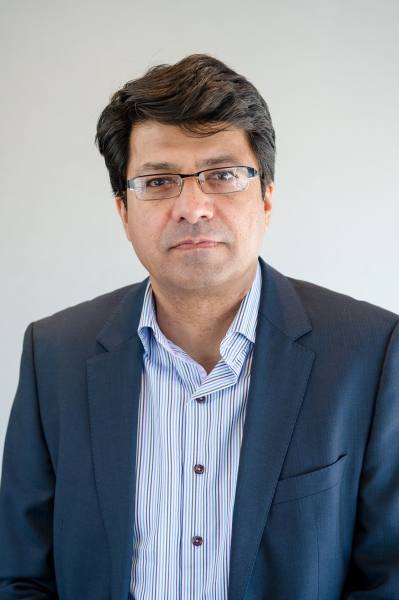 Tariq Samad is a Corporate Fellow with Honeywell Automation and Control Solutions, based in Minneapolis, U.S.A. His career with Honeywell has spanned 29 years, during which time he has contributed to and led automation and control technology developments for applications in electric power systems, clean energy, building management, the process industries, automotive engines, unmanned aircraft, and advanced manufacturing. His research interests relate broadly to automation, intelligence, and autonomy for complex engineering systems. Dr. Samad was the President of the American Automatic Control Council in 2014-15 and the President of IEEE Control Systems Society in 2009. He is a Fellow of the IEEE and the recipient of a few awards including the 2008 IEEE CSS Control Systems Technology Award, a Distinguished Member Award from IEEE CSS, and an IEEE Third Millennium Medal. He was editor-in-chief of IEEE Control Systems Magazine from 1998 to 2003. He was the General Chair for the 2012 American Control Conference (Montréal). He currently chairs the “Pilot” Industry Committee for IFAC that is developing recommendations for improving university/industry collaborations in control and automation. His recent service as workshop chair includes the International Workshop on Smart City (Hangzhou, China, Sept. 2013), the Workshop on Human Cyberphysical Systems: Control for Human Welfare (Paris, Sept. 2014), and Control at Large Scales: Energy Markets and Responsive Grids (Minneapolis, May 2016). Dr. Samad holds 20 patents and has authored or coauthored over 100 conference and journal publications. He has also authored one book and edited several books and reports. The latter include the online report, The Impact of Control Technology (co-editor, IEEE CSS), and the Encyclopedia of Systems and Control (co-editor-in-chief, Springer). He is the editor-in-chief of IEEE Press. He was a founding member of the Board of Directors of the Smart Grid Interoperability Panel. Dr. Samad holds a B.S. degree in Engineering and Applied Science from Yale University and M.S. and Ph.D. degrees in Electrical and Computer Engineering from Carnegie Mellon University.
Tariq Samad is a Corporate Fellow with Honeywell Automation and Control Solutions, based in Minneapolis, U.S.A. His career with Honeywell has spanned 29 years, during which time he has contributed to and led automation and control technology developments for applications in electric power systems, clean energy, building management, the process industries, automotive engines, unmanned aircraft, and advanced manufacturing. His research interests relate broadly to automation, intelligence, and autonomy for complex engineering systems. Dr. Samad was the President of the American Automatic Control Council in 2014-15 and the President of IEEE Control Systems Society in 2009. He is a Fellow of the IEEE and the recipient of a few awards including the 2008 IEEE CSS Control Systems Technology Award, a Distinguished Member Award from IEEE CSS, and an IEEE Third Millennium Medal. He was editor-in-chief of IEEE Control Systems Magazine from 1998 to 2003. He was the General Chair for the 2012 American Control Conference (Montréal). He currently chairs the “Pilot” Industry Committee for IFAC that is developing recommendations for improving university/industry collaborations in control and automation. His recent service as workshop chair includes the International Workshop on Smart City (Hangzhou, China, Sept. 2013), the Workshop on Human Cyberphysical Systems: Control for Human Welfare (Paris, Sept. 2014), and Control at Large Scales: Energy Markets and Responsive Grids (Minneapolis, May 2016). Dr. Samad holds 20 patents and has authored or coauthored over 100 conference and journal publications. He has also authored one book and edited several books and reports. The latter include the online report, The Impact of Control Technology (co-editor, IEEE CSS), and the Encyclopedia of Systems and Control (co-editor-in-chief, Springer). He is the editor-in-chief of IEEE Press. He was a founding member of the Board of Directors of the Smart Grid Interoperability Panel. Dr. Samad holds a B.S. degree in Engineering and Applied Science from Yale University and M.S. and Ph.D. degrees in Electrical and Computer Engineering from Carnegie Mellon University.
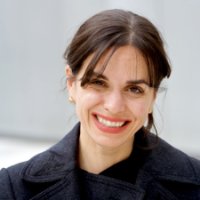 Ana Pinto da Silva serves as the Principal UX Design Lead for Amazon's Grand Challenges team. Ana’s work synthesizes her interests in design, storytelling, architecture and emerging technologies with her deep passion for creative collaboration. Ana’s previous experience includes immersive technology envisioning, game development, architecture, and interactive media. She has lead design across a wide array of projects including healthcare, education, civics and workplace productivity. Her work has garnered several awards including the Al Falah Grant from U.C. Berkeley in 2002 and a Webby Worthy Award in 2003. In addition to her media work, Ana has been an instructor at San Francisco State’s Multimedia Studies Program developing and teaching courses on the history of interactive media and portfolio development. She deeply committed to serving the creative community. She is the founder of Seattle Pecha Kucha’s speaker series, one of the longest running PK city series in the world. She currently serves on the board of directors for 4Culture, as board Vice-President for Design In Public, and most recently has been an adviser to the Seattle Waterfront Design Oversight Committee. Ana received her B.A. in Architecture from U.C. Berkeley and her MDesS from the Graduate School of Design at Harvard University. She is a graduate of Seattle’s Leadership Tomorrow’s serving as class valedictorian in 2009.
Ana Pinto da Silva serves as the Principal UX Design Lead for Amazon's Grand Challenges team. Ana’s work synthesizes her interests in design, storytelling, architecture and emerging technologies with her deep passion for creative collaboration. Ana’s previous experience includes immersive technology envisioning, game development, architecture, and interactive media. She has lead design across a wide array of projects including healthcare, education, civics and workplace productivity. Her work has garnered several awards including the Al Falah Grant from U.C. Berkeley in 2002 and a Webby Worthy Award in 2003. In addition to her media work, Ana has been an instructor at San Francisco State’s Multimedia Studies Program developing and teaching courses on the history of interactive media and portfolio development. She deeply committed to serving the creative community. She is the founder of Seattle Pecha Kucha’s speaker series, one of the longest running PK city series in the world. She currently serves on the board of directors for 4Culture, as board Vice-President for Design In Public, and most recently has been an adviser to the Seattle Waterfront Design Oversight Committee. Ana received her B.A. in Architecture from U.C. Berkeley and her MDesS from the Graduate School of Design at Harvard University. She is a graduate of Seattle’s Leadership Tomorrow’s serving as class valedictorian in 2009.
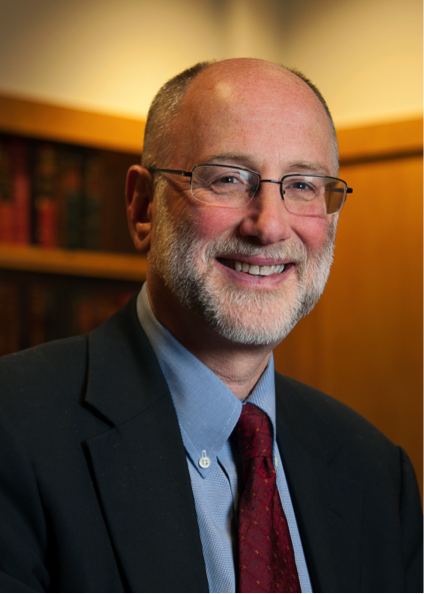 Alan Tomkins currently serves as Acting Division Director, Social and Economic Sciences, Directorate for Social, Behavioral and Economic Sciences, National Science Foundation. Before joining NSF, Alan was Founding Director, University of Nebraska Public Policy Center (from 1998) and professor in the UNL Law/Psychology Program (from 1986). His involvement in Smart and Connected Communities is related to NSF’s interest in funding high-quality, basic social and behavioral science that addresses critical issues pertinent to SCC. Alan’s own research interests include trust and confidence in public institutions and public engagement to inform governmental policy and increase trust in government. Alan received his JD and PhD in Social Psychology in 1984 from Washington University in St. Louis.
Alan Tomkins currently serves as Acting Division Director, Social and Economic Sciences, Directorate for Social, Behavioral and Economic Sciences, National Science Foundation. Before joining NSF, Alan was Founding Director, University of Nebraska Public Policy Center (from 1998) and professor in the UNL Law/Psychology Program (from 1986). His involvement in Smart and Connected Communities is related to NSF’s interest in funding high-quality, basic social and behavioral science that addresses critical issues pertinent to SCC. Alan’s own research interests include trust and confidence in public institutions and public engagement to inform governmental policy and increase trust in government. Alan received his JD and PhD in Social Psychology in 1984 from Washington University in St. Louis.
Almis Udrys was appointed by Mayor Faulconer to establish the City of San Diego’s Performance & Analytics Department, which is responsible for implementing performance management, open data, and customer service initiatives as well as employee efficiency incentive programs. A 15-year veteran of both state and local government, Almis' career includes a leadership staff role at the California State Legislature as a principal budget strategist, which required negotiating with Governor Schwarzenegger over a $20 billion budget deficit. His policy and operational experiences have also spanned health care, infrastructure, economic development, and government relations. Almis has spoken domestically and internationally on his current role in helping drive Mayor Faulconer's vision for a culture at City Hall that reflects the innovation of the San Diego region. Most recently, Almis gave a TEDx talk entitled "Can Streetlights Save Democracy?" weaving together themes of civic engagement and the coupling of data and smart city technology. Almis has an M.P.P. from Pepperdine University and is a certified Lean Six Sigma green belt.
 Nalini Venkatasubramanian is currently a Professor in the School of Information and Computer Science at the University of California Irvine. She has had significant research and industry experience in the areas of distributed systems, adaptive middleware, pervasive and mobile computing, cyberphysical systems, distributed multimedia and formal methods and has over 200 publications in these areas. As a key member of the Center for Emergency Response Technologies at UC Irvine, Nalini's recent research has focused on enabling resilient, sustainable and scalable observation and analysis of situational information from multimodal input sources; dynamic adaptation of the underlying systems to enable information flow under massive failures and the dissemination of rich notifications to members of the public at large. She is the recipient of the prestigious NSF Career Award, multiple Undergraduate Teaching Excellence Awards and best paper awards. Prof. Venkatasubramanian has served in numerous program and organizing committees of conferences on middleware, distributed systems and multimedia and on the editorial boards of journals. She received and M.S and Ph.D in Computer Science from the University of Illinois in Urbana-Champaign. Her research is supported both by government and industrial sources such as NSF, DHS, ONR, DARPA, Novell, Hewlett-Packard and Nokia. Prior to arriving at UC Irvine, Nalini was a Research Staff Member at the Hewlett-Packard Laboratories in Palo Alto, California.
Nalini Venkatasubramanian is currently a Professor in the School of Information and Computer Science at the University of California Irvine. She has had significant research and industry experience in the areas of distributed systems, adaptive middleware, pervasive and mobile computing, cyberphysical systems, distributed multimedia and formal methods and has over 200 publications in these areas. As a key member of the Center for Emergency Response Technologies at UC Irvine, Nalini's recent research has focused on enabling resilient, sustainable and scalable observation and analysis of situational information from multimodal input sources; dynamic adaptation of the underlying systems to enable information flow under massive failures and the dissemination of rich notifications to members of the public at large. She is the recipient of the prestigious NSF Career Award, multiple Undergraduate Teaching Excellence Awards and best paper awards. Prof. Venkatasubramanian has served in numerous program and organizing committees of conferences on middleware, distributed systems and multimedia and on the editorial boards of journals. She received and M.S and Ph.D in Computer Science from the University of Illinois in Urbana-Champaign. Her research is supported both by government and industrial sources such as NSF, DHS, ONR, DARPA, Novell, Hewlett-Packard and Nokia. Prior to arriving at UC Irvine, Nalini was a Research Staff Member at the Hewlett-Packard Laboratories in Palo Alto, California.
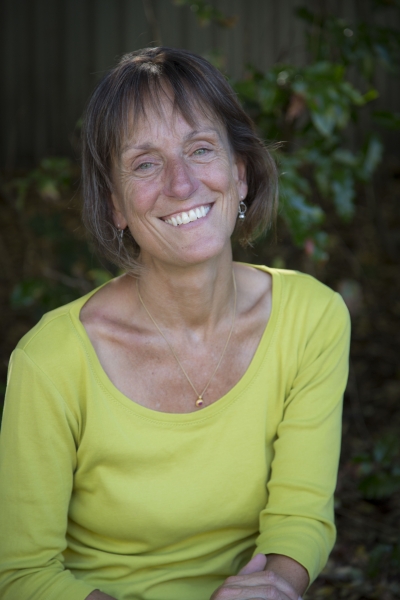 Thaisa Way is an urban landscape historian teaching history, theory, and design at the University of Washington, Seattle. Recent books include the co-edited work with Ken Yocom, Ben Spencer, and Jeff Hou (Routledge 2014) Now Urbanism: The Future City is Here and The Landscape Architecture of Richard Haag: From Modern Space to Urban Ecological Design (UW Press, 2015). Dr. Way is a Senior Fellow at the Dumbarton Oaks Garden, Landscape Studies and is Executive Director of Urban@UW, an initiative of the Office of Research and CoMotion, to bring faculty, researchers, and students together with our community to address the greatest urban challenges and opportunities of the 21st century. A major initiative of Urban@UW is to catalyze research that moves us from smart to wise cities and communities. This project builds inclusive data-driven research and innovations to improve the resiliency and health of future cities and communities.
Thaisa Way is an urban landscape historian teaching history, theory, and design at the University of Washington, Seattle. Recent books include the co-edited work with Ken Yocom, Ben Spencer, and Jeff Hou (Routledge 2014) Now Urbanism: The Future City is Here and The Landscape Architecture of Richard Haag: From Modern Space to Urban Ecological Design (UW Press, 2015). Dr. Way is a Senior Fellow at the Dumbarton Oaks Garden, Landscape Studies and is Executive Director of Urban@UW, an initiative of the Office of Research and CoMotion, to bring faculty, researchers, and students together with our community to address the greatest urban challenges and opportunities of the 21st century. A major initiative of Urban@UW is to catalyze research that moves us from smart to wise cities and communities. This project builds inclusive data-driven research and innovations to improve the resiliency and health of future cities and communities.
 Chengshan Xiao is an IEEE Fellow and Professor with the Department of Electrical and Computer Engineering at Missouri University of Science and Technology, Rolla, MO (formerly the University of Missouri - Rolla). He is currently serving as a Program Director at the National Science Foundation through IPA assignment. Previously, he was a senior member of scientific staff with Nortel Networks, Ottawa, Canada, a faculty member at Tsinghua University, Beijing, China, the University of Alberta, Edmonton, Canada, and the University of Missouri - Columbia, MO. He also held visiting professor positions in Germany and Hong Kong. His research interests include wireless communications, signal processing, and underwater acoustic communications. He is the holder of three U.S. patents. His invented algorithms have been implemented into Nortel's base station radio products after successful technical field trials and network integration. Dr. Xiao served as an elected member of Board of Governors, a member of Fellow Evaluation Committee, and Distinguished Lecturer of the IEEE Communications Society. He was the Editor-in-Chief of the IEEE Transactions on Wireless Communications. He also served as the founding Chair of the IEEE Wireless Communications Technical Committee. He received the 2014 Humboldt Research Award and 2014 IEEE Communications Society Joseph LoCicero Award.
Chengshan Xiao is an IEEE Fellow and Professor with the Department of Electrical and Computer Engineering at Missouri University of Science and Technology, Rolla, MO (formerly the University of Missouri - Rolla). He is currently serving as a Program Director at the National Science Foundation through IPA assignment. Previously, he was a senior member of scientific staff with Nortel Networks, Ottawa, Canada, a faculty member at Tsinghua University, Beijing, China, the University of Alberta, Edmonton, Canada, and the University of Missouri - Columbia, MO. He also held visiting professor positions in Germany and Hong Kong. His research interests include wireless communications, signal processing, and underwater acoustic communications. He is the holder of three U.S. patents. His invented algorithms have been implemented into Nortel's base station radio products after successful technical field trials and network integration. Dr. Xiao served as an elected member of Board of Governors, a member of Fellow Evaluation Committee, and Distinguished Lecturer of the IEEE Communications Society. He was the Editor-in-Chief of the IEEE Transactions on Wireless Communications. He also served as the founding Chair of the IEEE Wireless Communications Technical Committee. He received the 2014 Humboldt Research Award and 2014 IEEE Communications Society Joseph LoCicero Award.
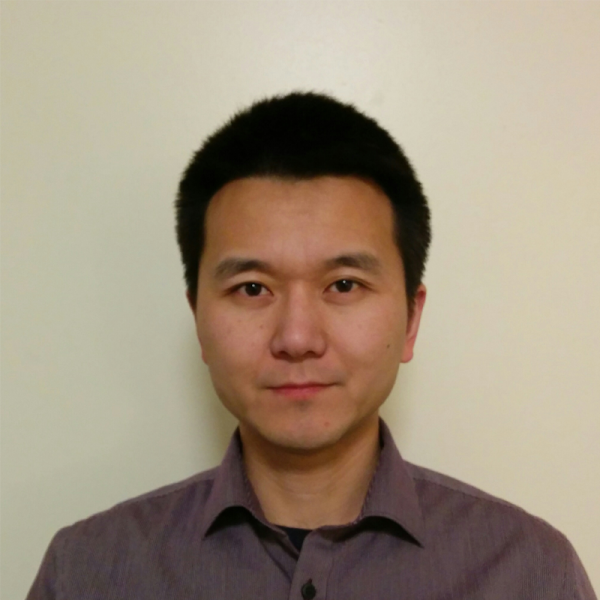 Jingjin Yu is an assistant professor in the Department of Computer Science at Rutgers University. He is broadly interested in the sensing, planning, and control of multi-agent systems encompassing robotic and biological swarms, with a particular focus on computation. In tackling such planning and control problems, his general goal is to develop high-performance algorithmic solutions with provable guarantees on solution optimality, convergence rate, and other desirable properties. Jointly with colleagues (Dr. Mubbasir Kapadia, crowd analytics and computer animation, and Dr. Vladimir Pavlovic, statistical learning, dynamic system modeling, and computer vision) at Rutgers, they are working on seamlessly integrating real-time crowd analytics (including sensing) and distributed consensus for enabling the next generation of truly "smart" cities. A key piece of enabling technology to be developed is SmartSigns, interactive fixed/mobile displays that rapidly update to facilitate real time interaction between the crowd and the physical environment, thus allowing various resources from both the crowd and the ambient environment to be optimally utilized. As an example application, a distributed SmartSigns system, in case of fire emergency, can effectively provide the best individualized escape routes that constantly update as the situation rapidly evolves, thus maximizing survival.
Jingjin Yu is an assistant professor in the Department of Computer Science at Rutgers University. He is broadly interested in the sensing, planning, and control of multi-agent systems encompassing robotic and biological swarms, with a particular focus on computation. In tackling such planning and control problems, his general goal is to develop high-performance algorithmic solutions with provable guarantees on solution optimality, convergence rate, and other desirable properties. Jointly with colleagues (Dr. Mubbasir Kapadia, crowd analytics and computer animation, and Dr. Vladimir Pavlovic, statistical learning, dynamic system modeling, and computer vision) at Rutgers, they are working on seamlessly integrating real-time crowd analytics (including sensing) and distributed consensus for enabling the next generation of truly "smart" cities. A key piece of enabling technology to be developed is SmartSigns, interactive fixed/mobile displays that rapidly update to facilitate real time interaction between the crowd and the physical environment, thus allowing various resources from both the crowd and the ambient environment to be optimally utilized. As an example application, a distributed SmartSigns system, in case of fire emergency, can effectively provide the best individualized escape routes that constantly update as the situation rapidly evolves, thus maximizing survival.
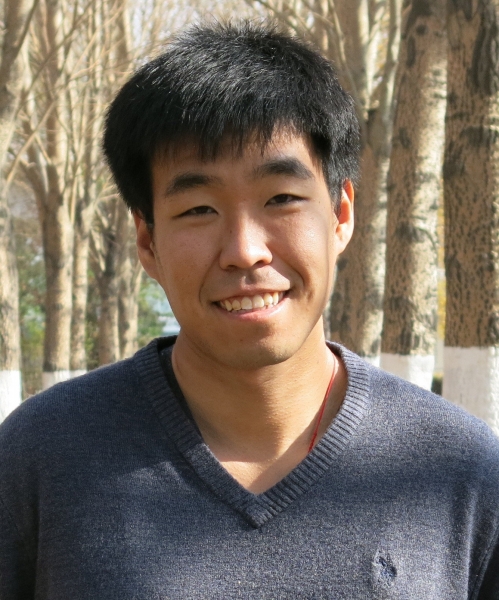 Baosen Zhang is an Assistant Professor in the department of Electrical Engineering at the University of Washington. He received the B.A.Sc. degree in engineering science from the University of Toronto, Toronto, ON, Canada, in 2008 and the Ph.D. degree Department of Electrical Engineering and Computer Science, University of California at Berkeley in 2013. Before joining UW, he was postdoctoral scholar at Stanford University, jointly hosted by departments of Civil and Environmental Engineering and Management & Science Engineering. His interest is in how physical systems interact with human users. In particular, he works in the area of power systems and other urban systems. He combines fundamental understanding of physical systems, economics, machine learning, and user behavior to design effective control strategies. He was awarded several fellowships: the Post Graduate Scholarship from NSERC in 2011; the Canadian Graduate Scholarship from NSERC in 2008; the EECS fellowship from Berkeley in 2008. He was selected as one of Forbes 30-under-30 professionals in energy in 2015.
Baosen Zhang is an Assistant Professor in the department of Electrical Engineering at the University of Washington. He received the B.A.Sc. degree in engineering science from the University of Toronto, Toronto, ON, Canada, in 2008 and the Ph.D. degree Department of Electrical Engineering and Computer Science, University of California at Berkeley in 2013. Before joining UW, he was postdoctoral scholar at Stanford University, jointly hosted by departments of Civil and Environmental Engineering and Management & Science Engineering. His interest is in how physical systems interact with human users. In particular, he works in the area of power systems and other urban systems. He combines fundamental understanding of physical systems, economics, machine learning, and user behavior to design effective control strategies. He was awarded several fellowships: the Post Graduate Scholarship from NSERC in 2011; the Canadian Graduate Scholarship from NSERC in 2008; the EECS fellowship from Berkeley in 2008. He was selected as one of Forbes 30-under-30 professionals in energy in 2015.

